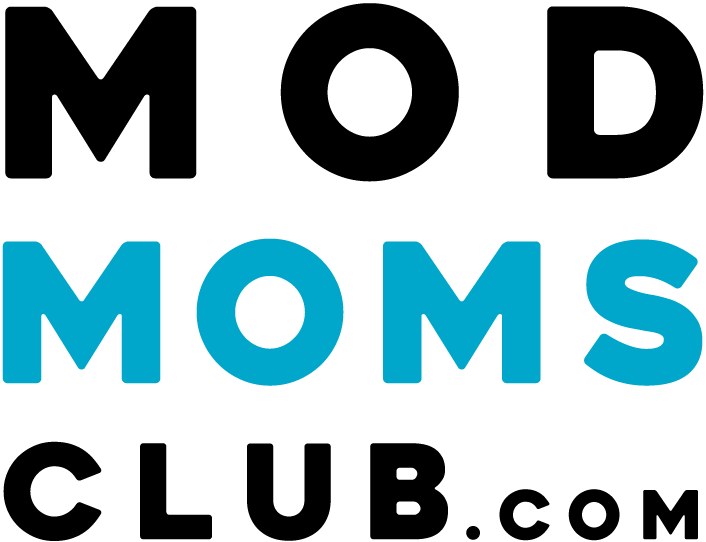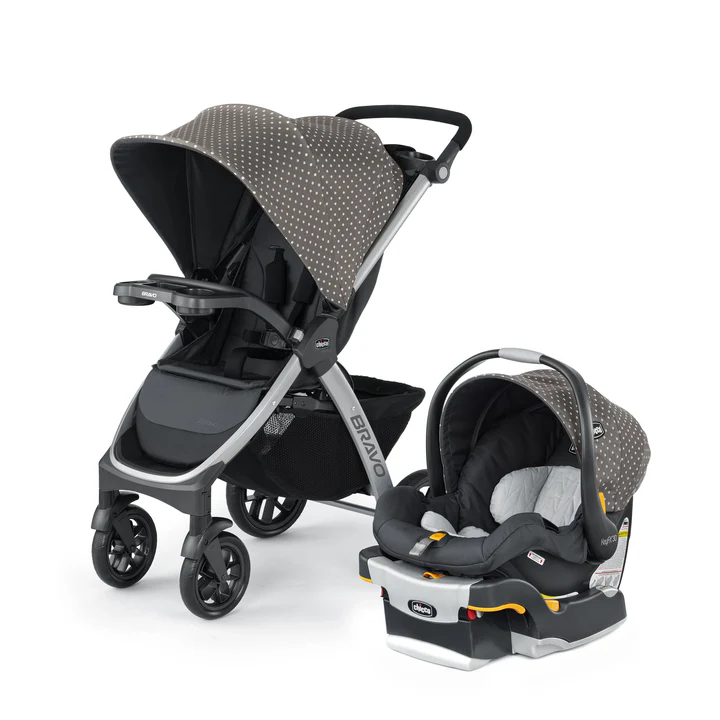“We took some time to settle into our new rhythm before sharing this sweet news.”
When you think of boy names that start with C, what’s the first name that comes to mind?
Most American parents would say Christopher or Charles, which have ranked 10th and 11th in popularity, respectively, over the last 100 years (since 1924).
According to the Social Security Administration (SSA), Christopher and Charles have accounted for more than four million births over that 100-year span.
But that, of course, is just the beginning of what C boy names have to offer.
After all, the letter “c” has been a top-5 first initial for boy names every year since 1970, per Behind the Name, and most recently accounted for more than 6.4% of all names given to baby boys in 2023.
And Charles and Christopher aren’t even the most popular C names for boys today.
While they still ranked 54th and 55th in 2023, respectively, the most popular C boy names today are, instead, Carter (48th), Caleb (51st) and Cooper (52nd).
In fact, Cameron (58th), Christian (77th) and Colton (94) were the only other boy names with C included in the SSA’s top-100 for 2023.
So, that begs the question — where are all those unique and rare boy names that start with C? Well, let’s find out!
Cesar
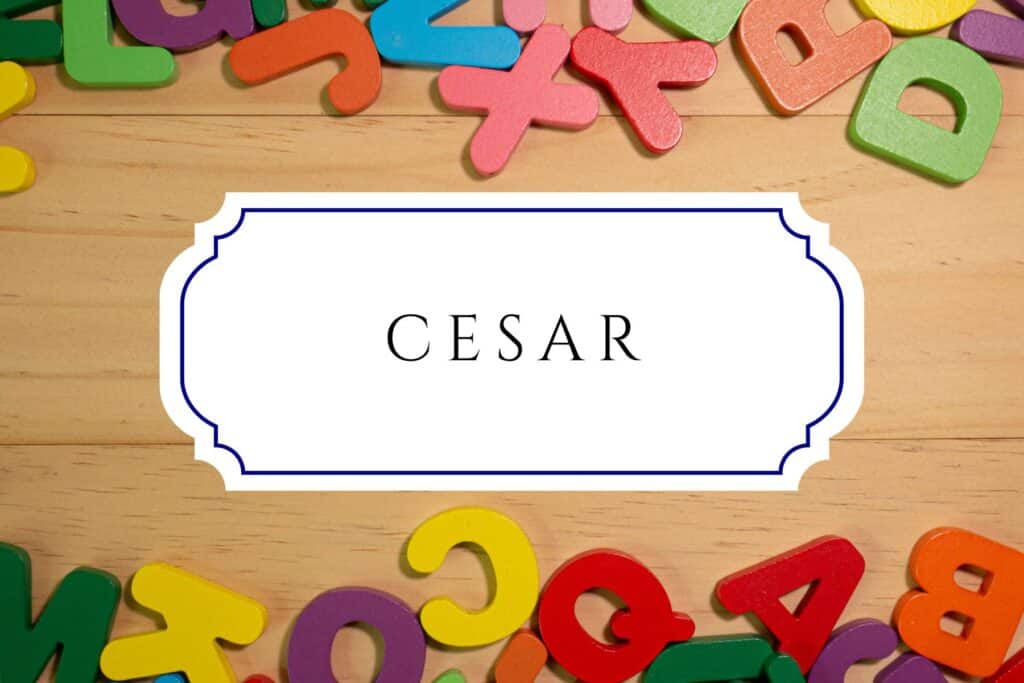
Origin: Roman; English
Meaning: Hairy
Cesar, pronounced SEE-zer, is the English form of the Roman cognomen Caesar, which is believed to be derived from the Latin word caesaries, meaning “hair.” It was used as a title by emperors who came after Julius Caesar and his son.
Chance
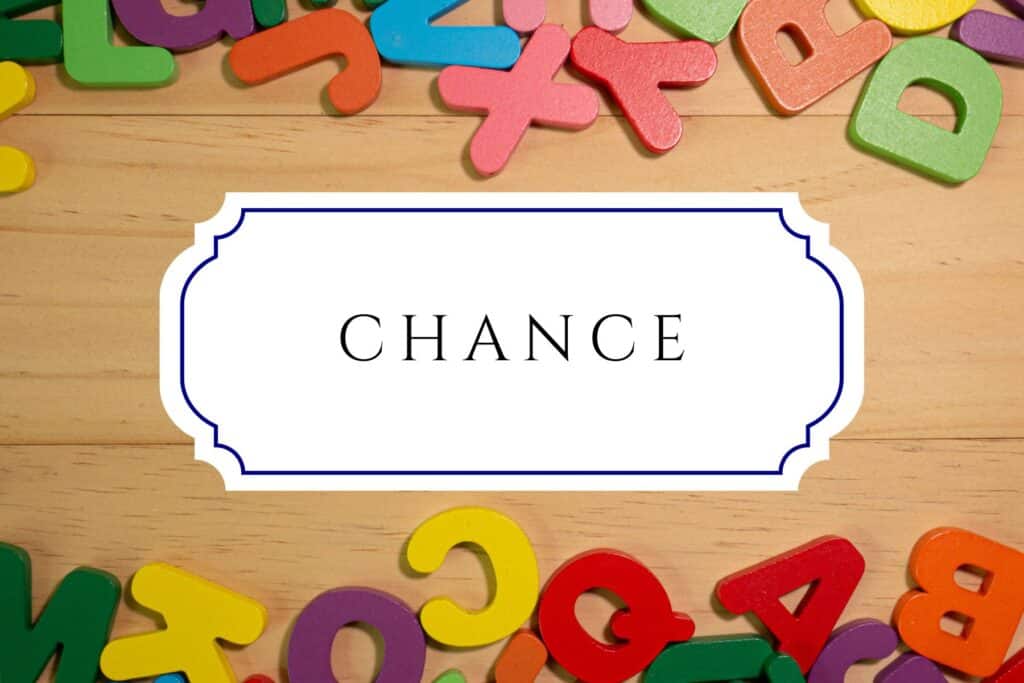
Origin: English; French; Latin
Meaning: Luck; Fortune; To fall
Chance, pronounced CHANS, comes from the Old French word cheance, meaning “luck” or “fortune,” and is derived from the Latin word cadens, meaning “to fall.” It can also be a diminutive name for Chauncey.
Clark
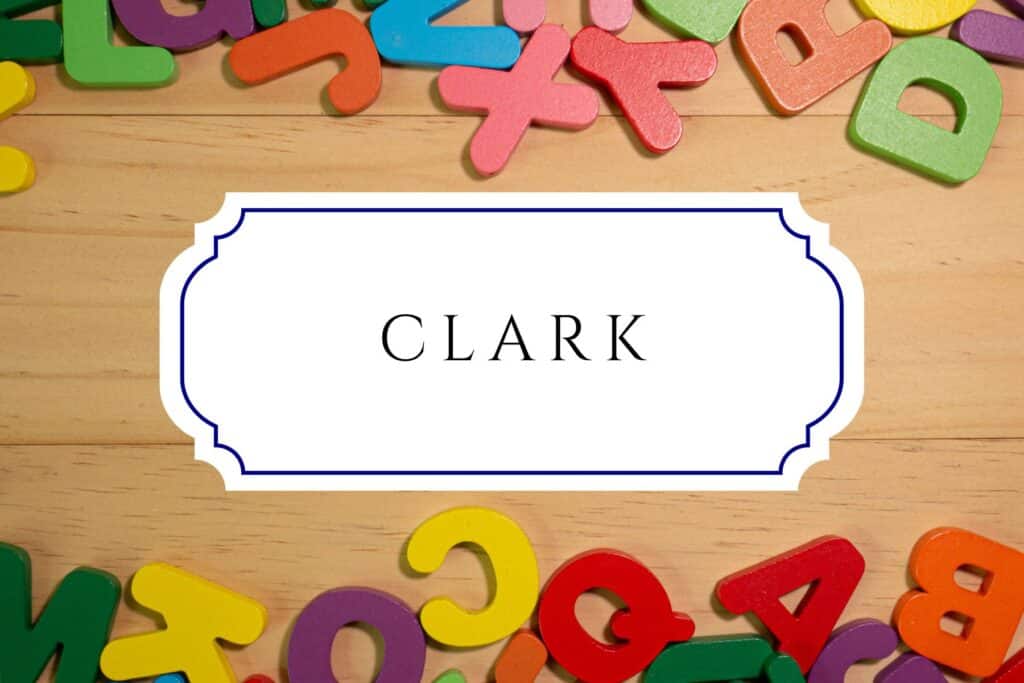
Origin: Old English; Latin
Meaning: Priest; Clerk; Scribe; Clergyman
Clark, pronounced KLARK, comes from the Old English word clerec, meaning “priest,” and Latin word clericus, meaning “clergyman.” It was originally used as a surname given to someone who worked as a scribe or clerk.
Corbin
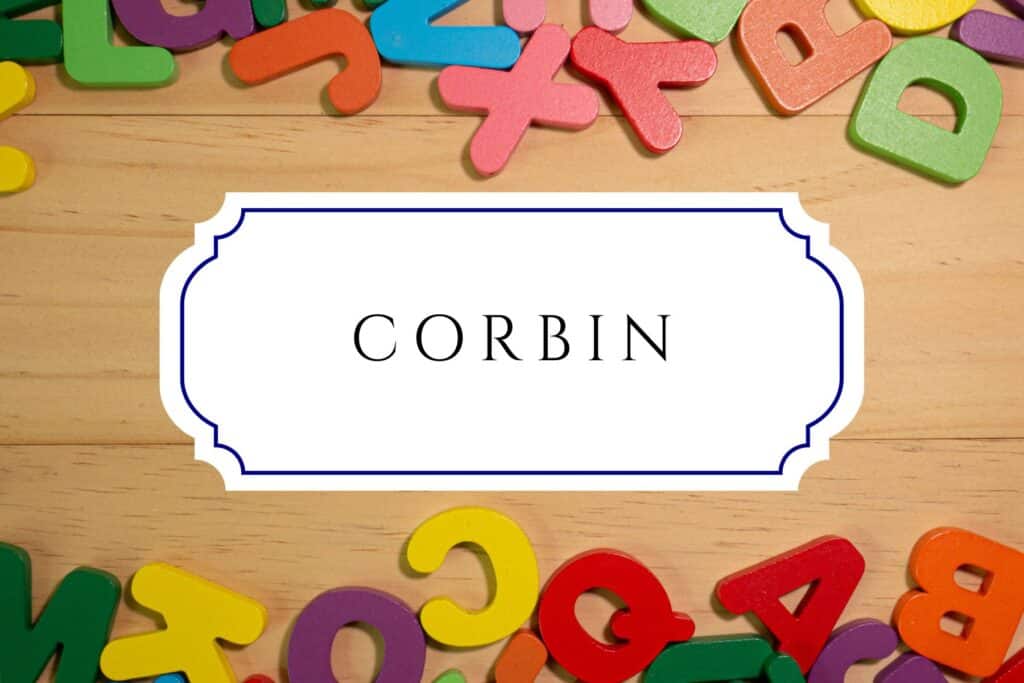
Origin: Old French
Meaning: Raven; Dark-haired
Corbin, pronounced KOR-bin, derives from the Old French word corbeau, meaning “raven.” It was originally given to someone with dark hair, resembling the dark black feathers of a raven (bird).
Callahan
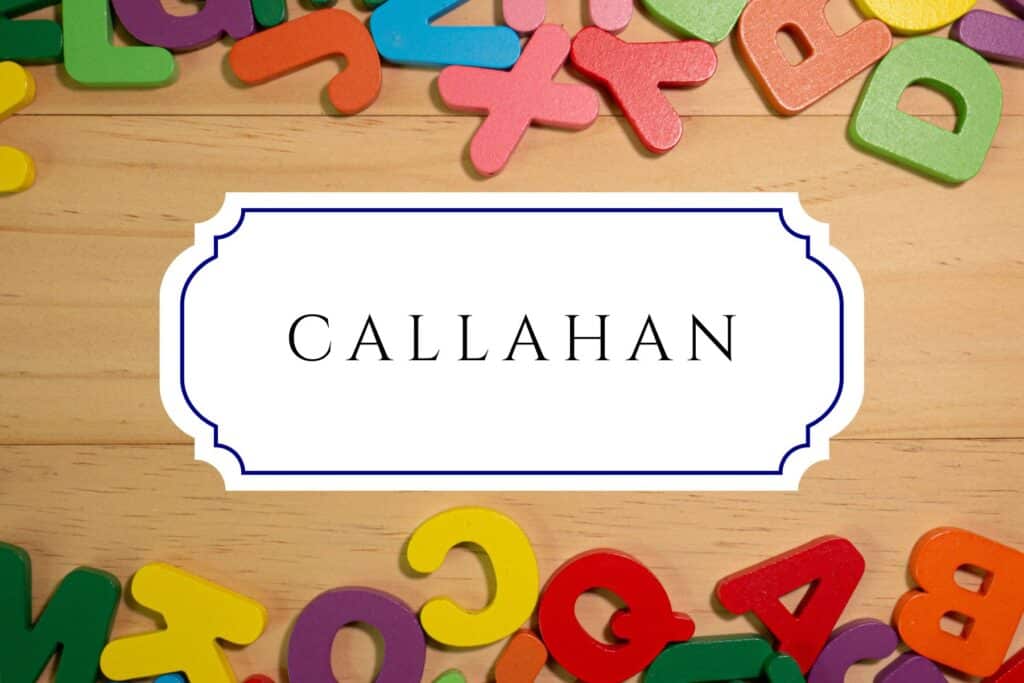
Origin: Irish; Gaelic
Meaning: Bright-headed; War; Strife; Church
Callahan, pronounced KAL-ə-han, is derived from the Irish Gaelic surname Ó Ceallacháin, which comes from the Old Irish name Cellach, meaning “bright-headed,” “war” or “church,” depending on its derivative.
Camilo
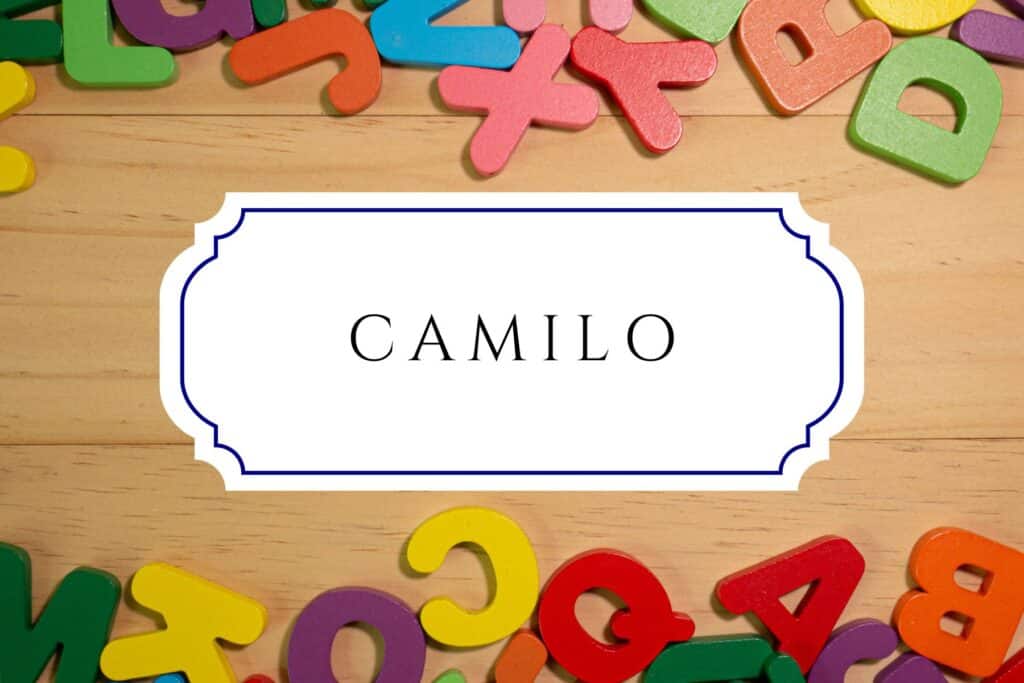
Origin: Spanish; Portuguese; Latin; Roman
Meaning: Attendant for religious services
Camilo, pronounced kah-MEE-lo, is the Spanish and Portuguese form of the Latin family name Camillus and Latin word camillus. In ancient Rome, a camillus was a youth who served as an attendant during religious ceremonies.
Cassian
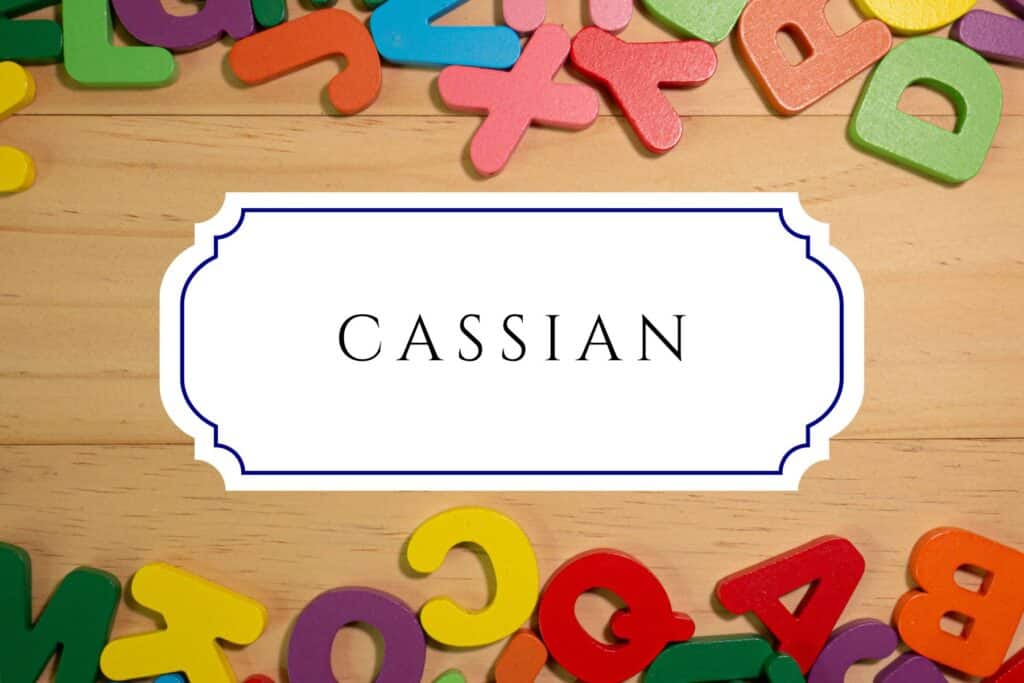
Origin: Latin; Roman
Meaning: Empty; Hollow; Vain
Cassian, pronounced KASH-un or KASS-ee-un, is derived from the Roman family name Cassianus and Cassius, both of which come from the Latin word cassus, meaning “empty” or “vain.” It was given to a 3rd-century martyr from Tangier who serves as the patron saint of stenographers.
Conrad
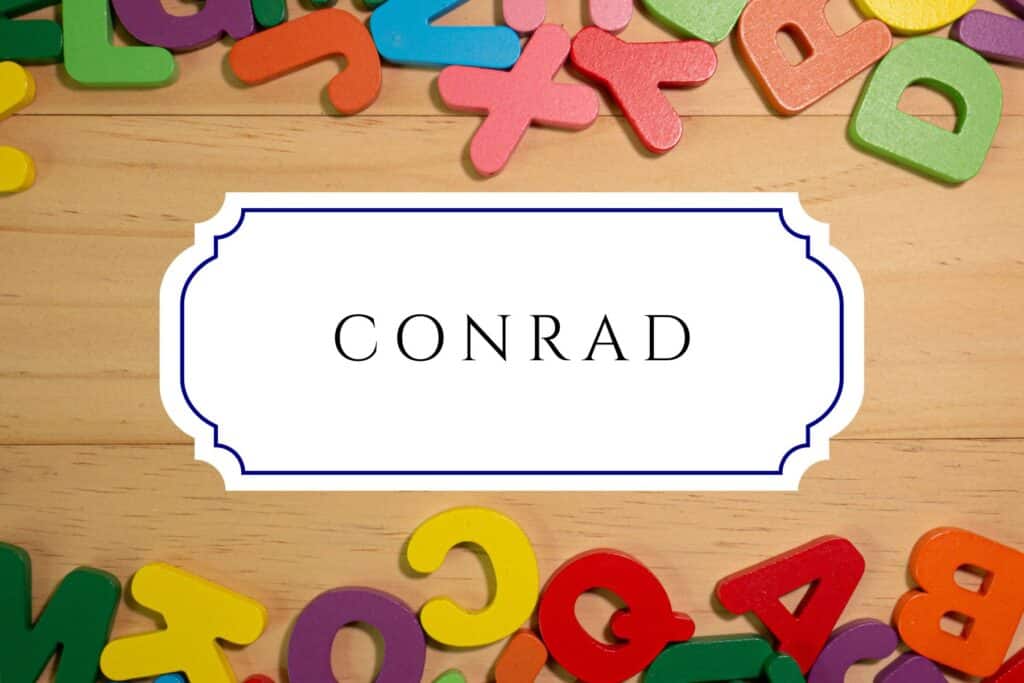
Origin: Germanic
Meaning: Brave counsel
Conrad, pronounced KON-rad, is composed of the Germanic elements kuoni, meaning “brave,” and rat, meaning “counsel.” It was borne by several German kings and emperors before being introduced to England by the Normans.
Cassius
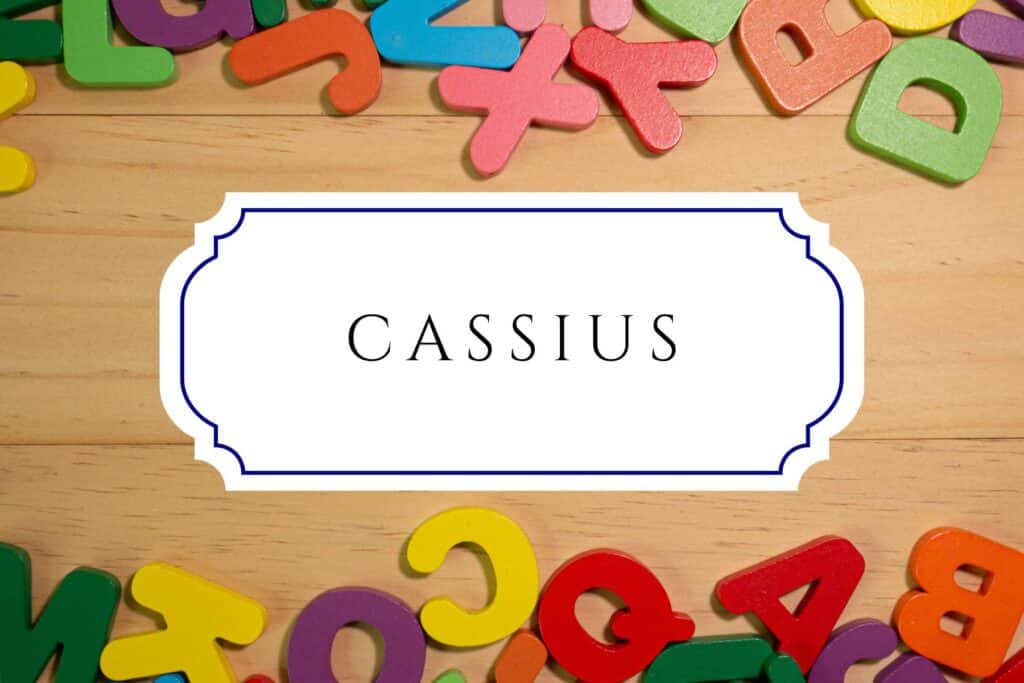
Origin: Roman; Latin
Meaning: Empty; Hollow
Cassius, pronounced KASH-us, is derived from the Roman clan name Cassius, which is believed to come from the Latin word cassus, meaning "empty" or "hollow." It was the original first name of legendary boxer Muhammad Ali.
Clay
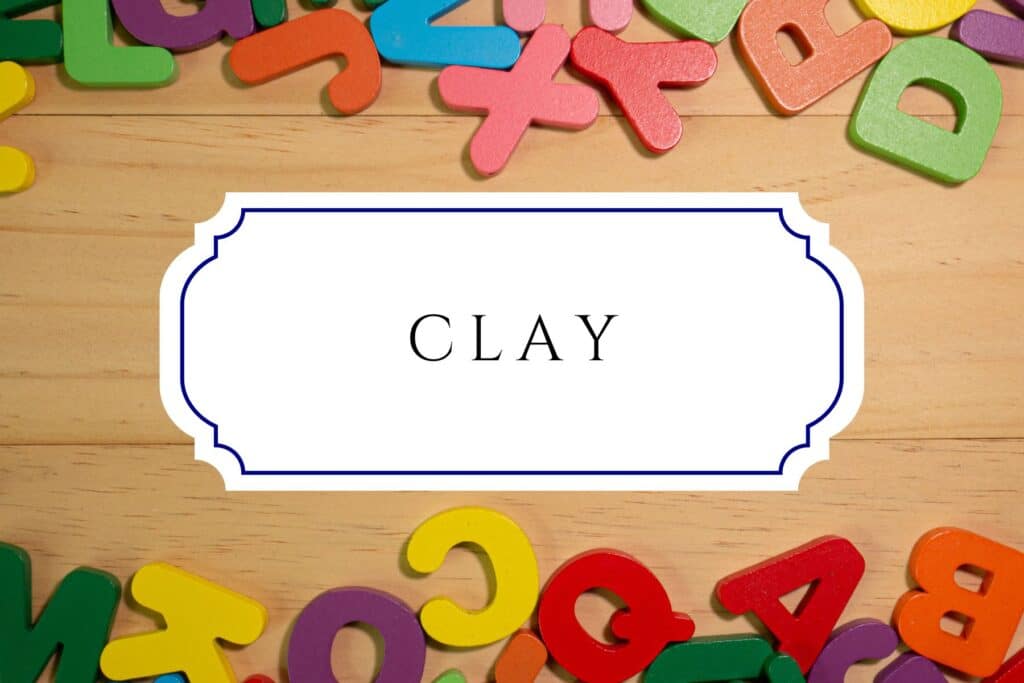
Origin: Old English
Meaning: Clay; Earth
Clay, pronounced KLAY, is derived from the Old English word clæg, referring to the natural material clay or earth, in general. It began as a surname indicating someone who lived near or worked with clay, and later transitioned to use as a first name. It can also be a shortened form of Clayton.
Cillian
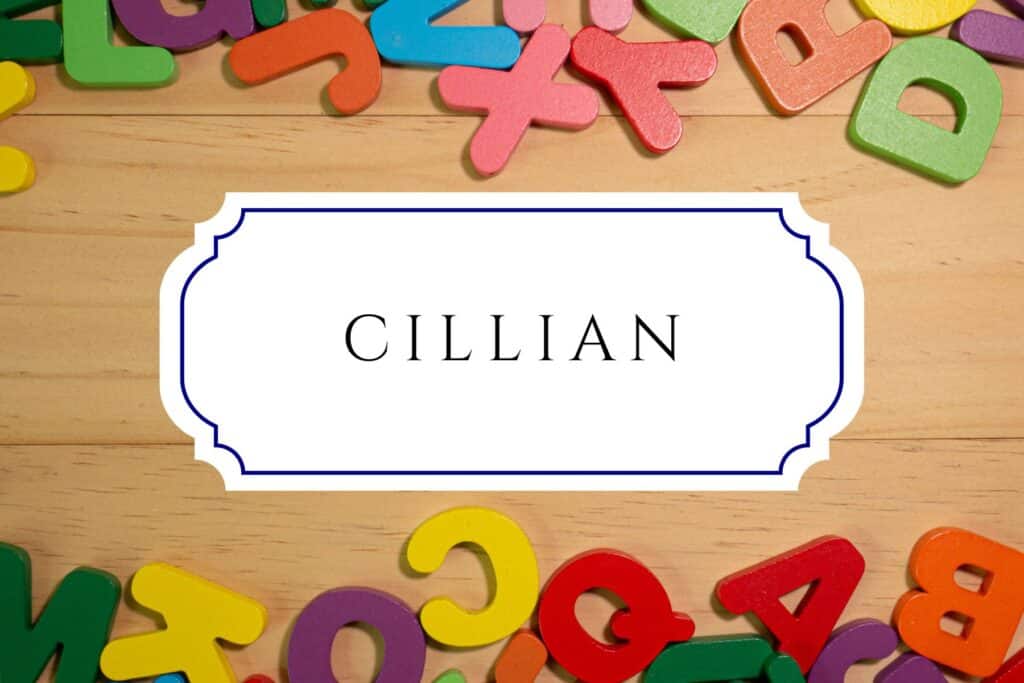
Origin: Irish; Gaelic
Meaning: Little church
Cillian, pronounced KILL-ee-an, comes from the Irish name Cillín and is believed to be derived from the Irish word cell, meaning “church,” combined with a diminutive suffix. It was popularized in the U.S. by Irish actor Cillian Murphy.
Colby
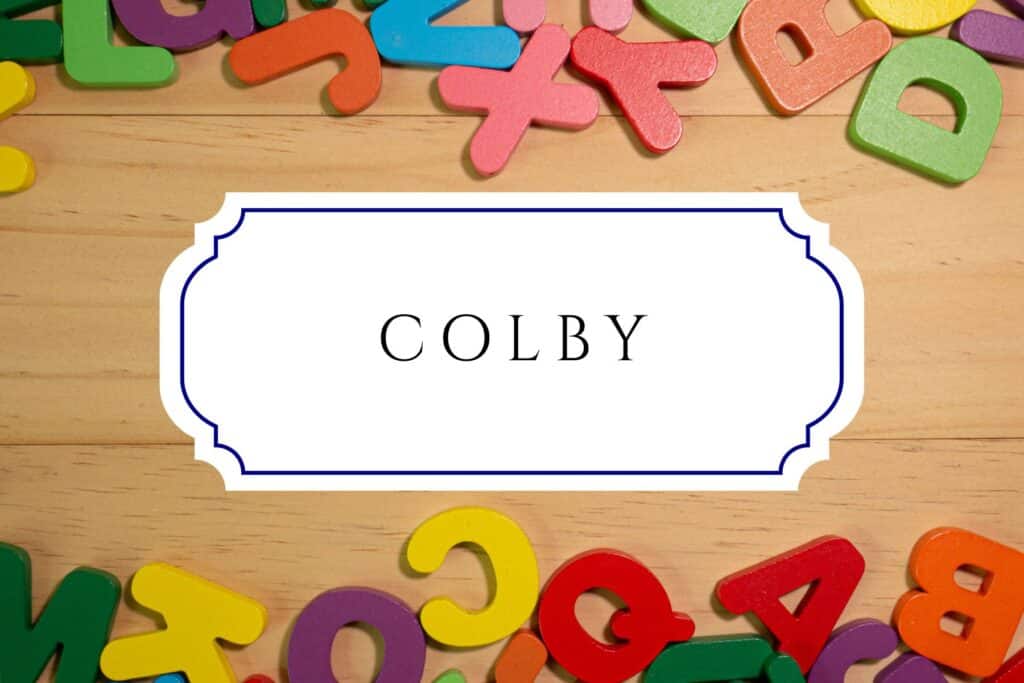
Origin: Old Norse
Meaning: Coal town; Dark settlement
Colby, pronounced KOHL-bee, derives from an Old Norse place name and is composed of the Old Norse elements Koli, meaning “coal” or “dark,” and býr, meaning “farm” or “settlement.” It was popularized in the U.S. by “Survivor” contestant Colby Donaldson in 2001.
Cannon
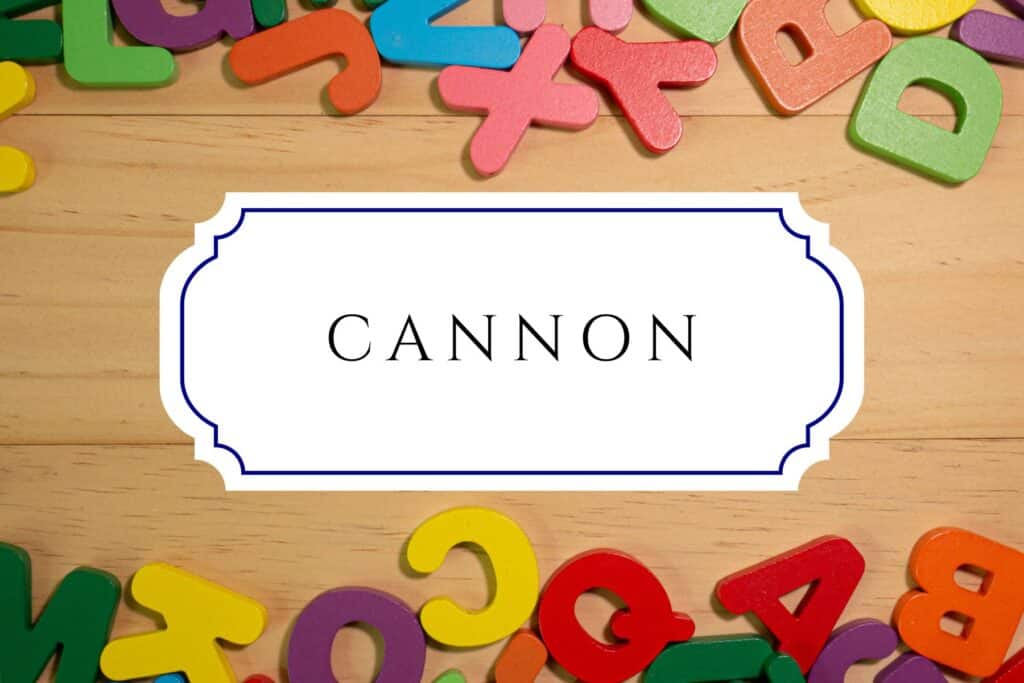
Origin: English; Italian
Meaning: Church official; Large artillery
Cannon, pronounced KAN-un, comes from both an occupational surname for a church official or servant who worked in a clergy house (via the Middle English word canon, or the word for a large, heavy piece of artillery (via the Italian word cannone).
Chaim
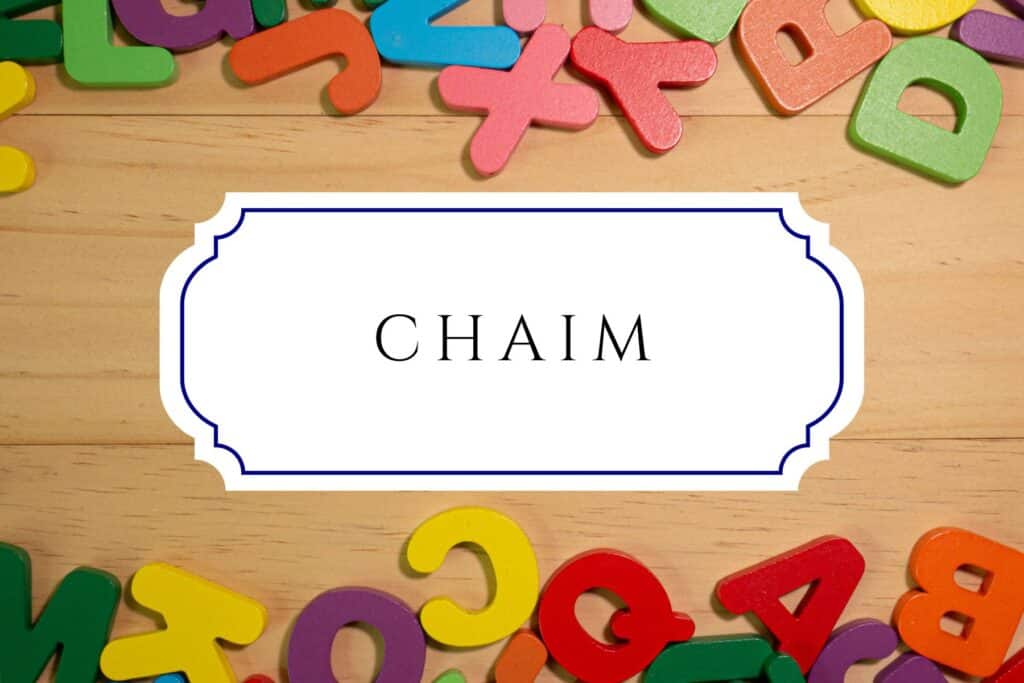
Origin: Hebrew
Meaning: Life; To live; Living
Chaim, pronounced KHYE-im (with a guttural "ch" as in "Bach"), is a traditional Jewish name derived from the Hebrew words chayyim, meaning "life,” and haya, meaning “to live.” L’Chaim is a common Jewish toast used during celebrations.
Caspian
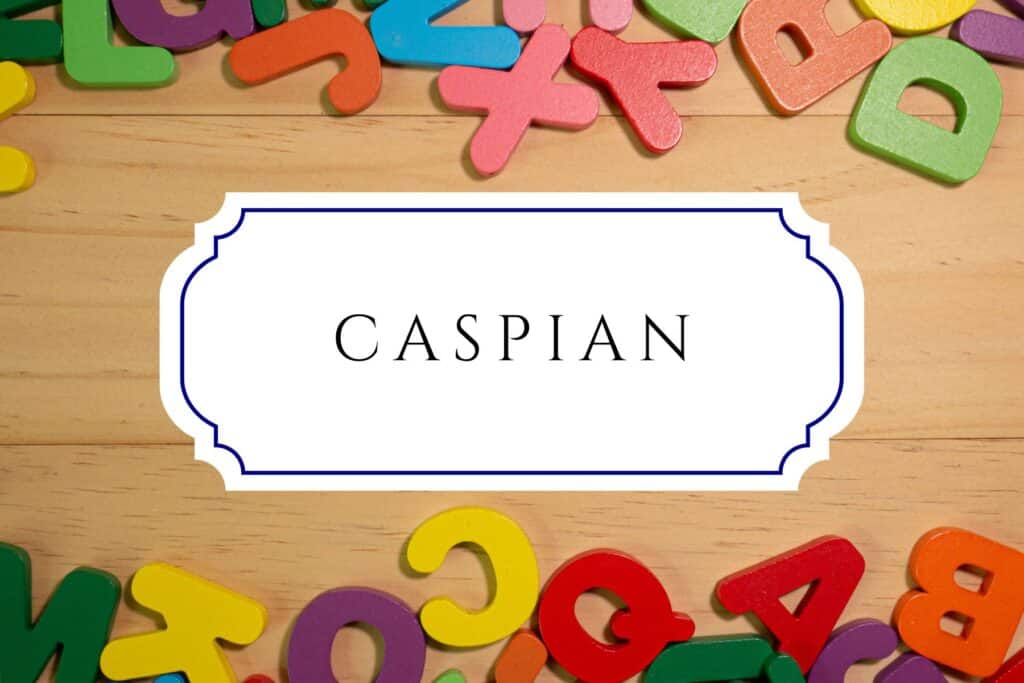
Origin: Eurasian; Literary
Meaning: Of the sea; From Qazvin
Caspian, pronounced KAS-pee-an, is derived from the Caspian Sea, which was named after the ancient city of Qazvin. It gained international popularity following C.S. Lewis's use of the name for Prince Caspian in his Chronicles of Narnia series.
Chosen
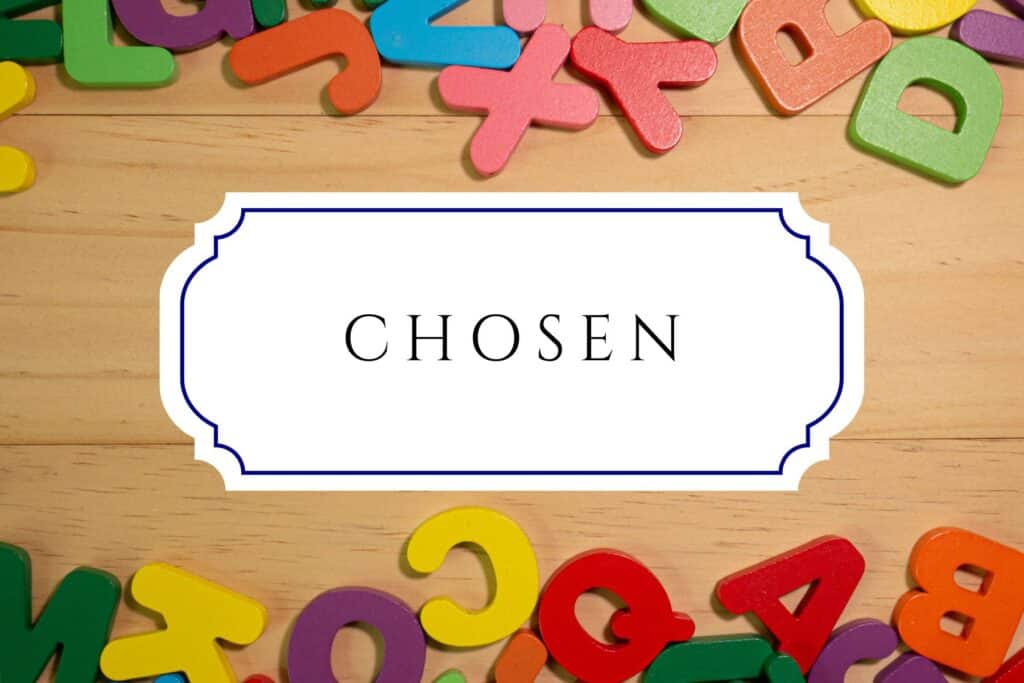
Origin: English
Meaning: Chosen; Selected; Hand-picked
Chosen, pronounced CHOH-zen, is an English word name derived directly from the past participle of the verb "to choose." It has religious connotations relating to being "chosen" by God and can be spelled Chozen for a more unique feel.
Creed
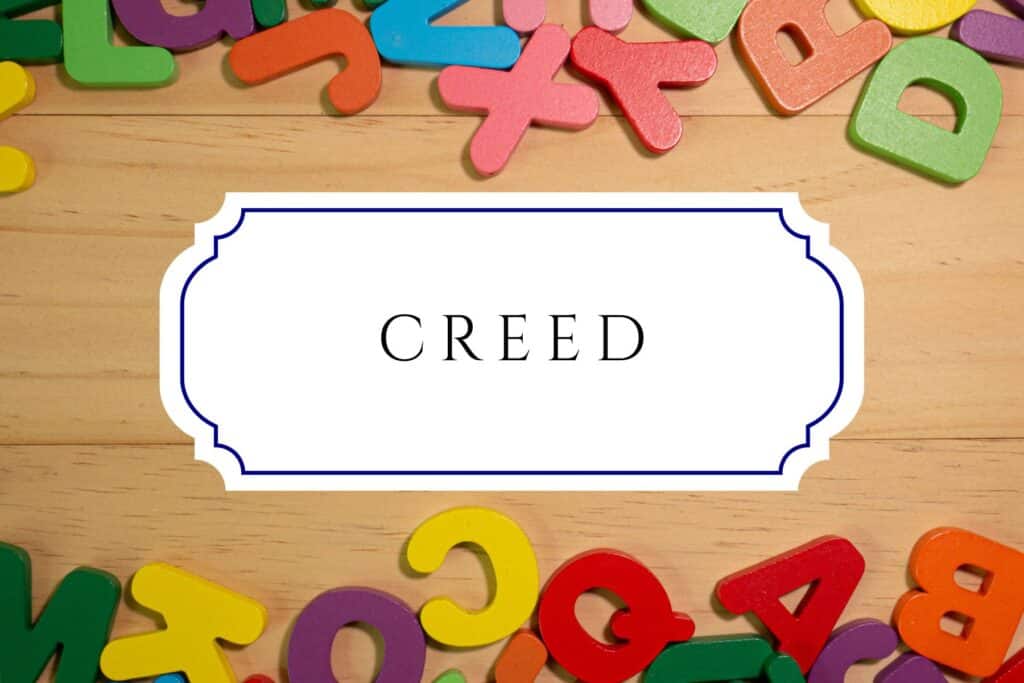
Origin: English; Latin
Meaning: Believer; One who believes
Creed, pronounced KREED, comes from the Latin word credo, meaning “I believe,” and credere, meaning “to believe.” It originally referred to a formal statement of religious belief but has evolved to indicate any guiding principle.
Chandler
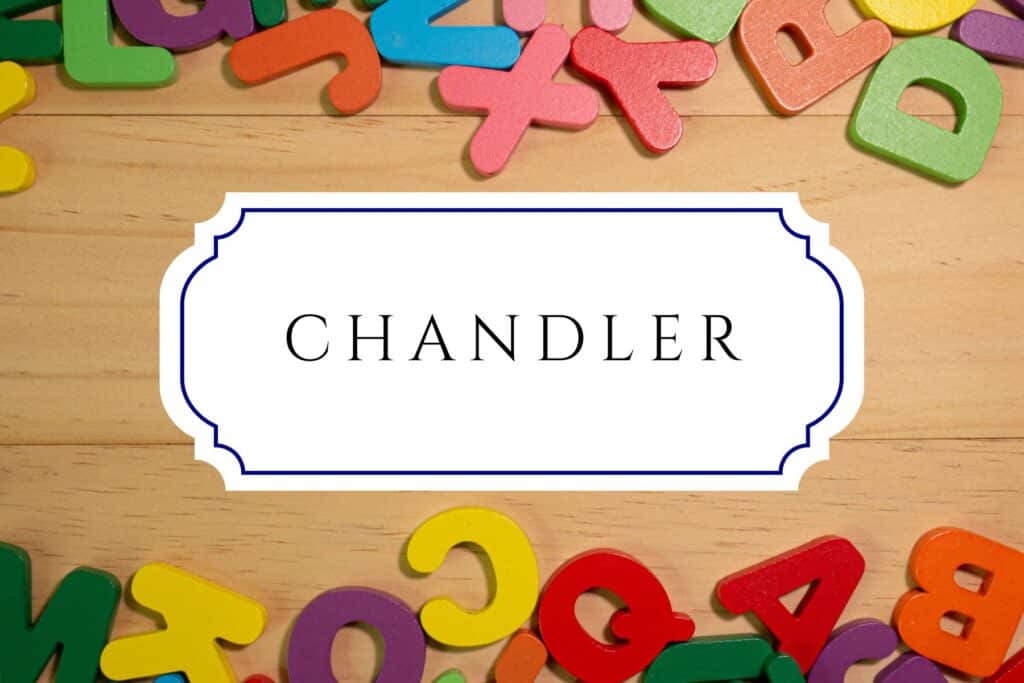
Origin: French; Latin; English
Meaning: Candle maker; Candle seller
Chandler, pronounced CHAND-ler, derives from the Old French chandelier and Medieval Latin candelarius, meaning “candle-maker” or “one who sells candles.” It began as an occupational surname before transitioning to a first name.
Case
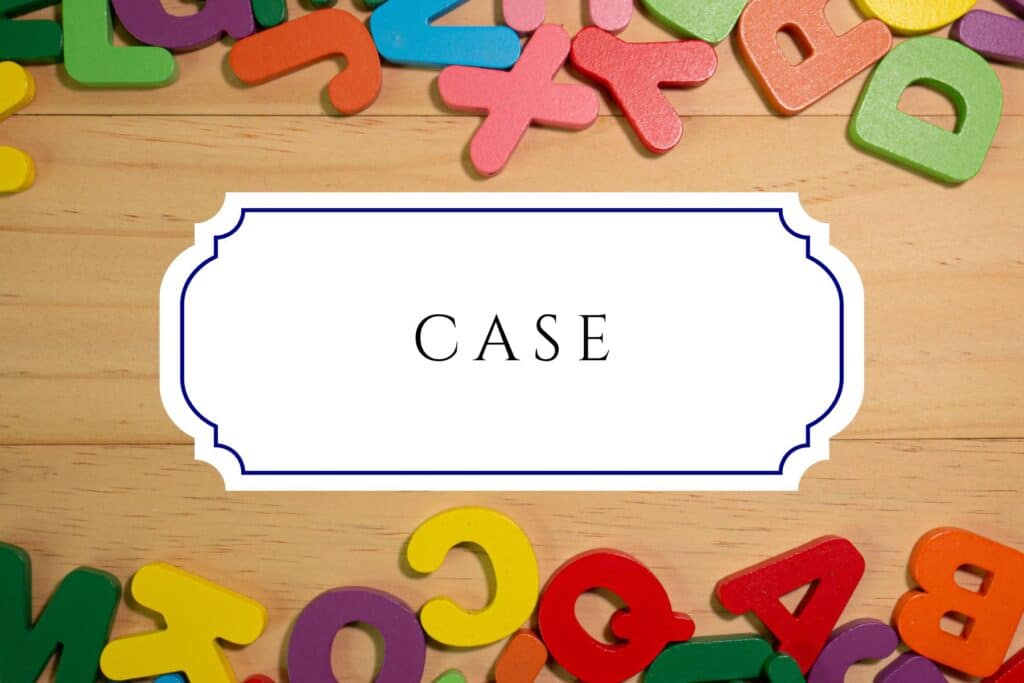
Origin: English; Latin; Irish
Meaning: Vigilant; Event; Container
Case, pronounced KAYSS, has multiple possible origins. It could be a short form of names like Casey, meaning “vigilant” in Irish, a derivative of the Latin word casus, meaning "event," or from the Middle English word case, meaning "container."
Cal
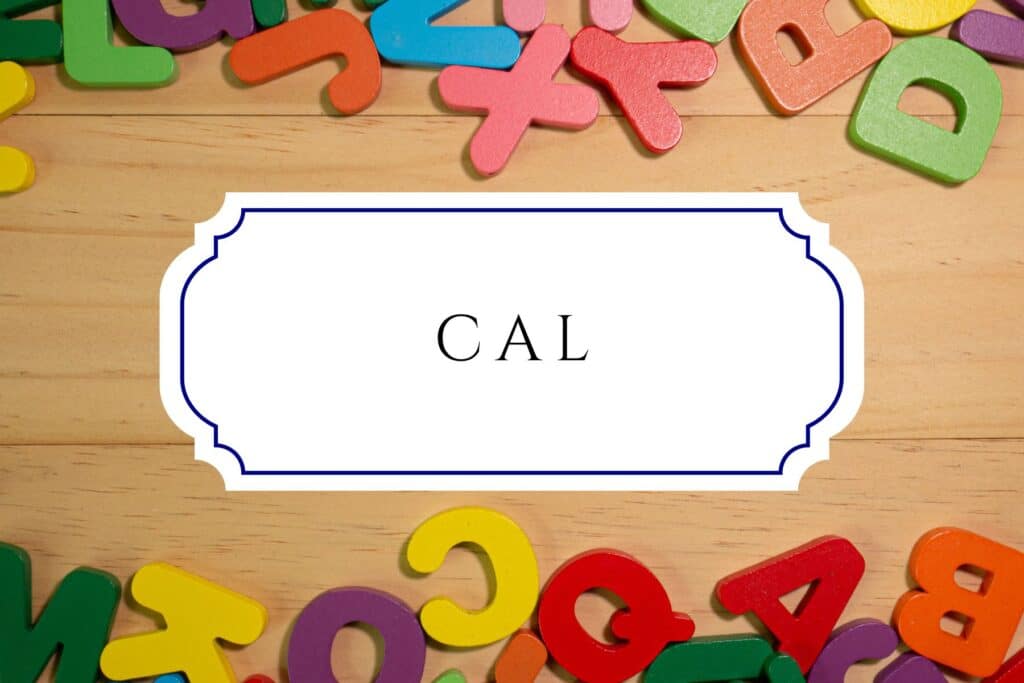
Origin: French; Gaelic; Hebrew
Meaning: Bald; Dove; Dog; Whole-hearted
Cal, pronounced KAL, is often a diminutive of longer names like Calvin, Callum, or Caleb. Calvin derives from the French word chauve, meaning "bald," while Callum comes from the Gaelic word columba, meaning "dove” and Caleb comes from the Hebrew word for “dog” or “whole-hearted.”
Clyde
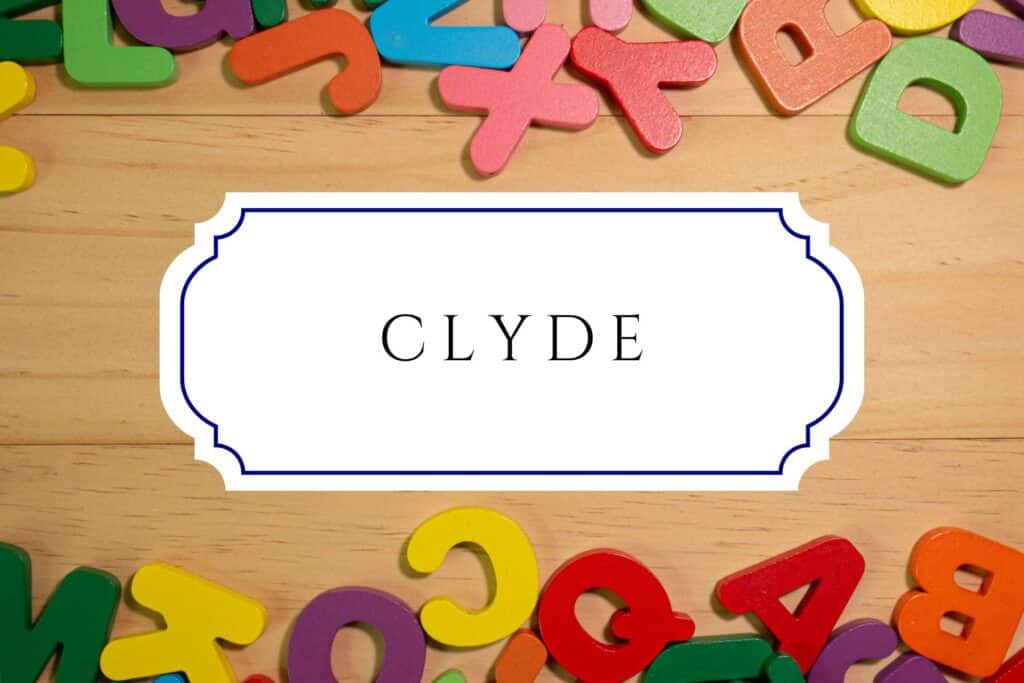
Origin: Scotland; Gaelic
Meaning: River goddess
Clyde, pronounced KLYDE, is derived from the River Clyde in Scotland. The river gets its name from the Brittonic goddess Clṻd (Clōta in Latin), who is believed to have been the Celtic deity of the River Clyde.
Carmelo
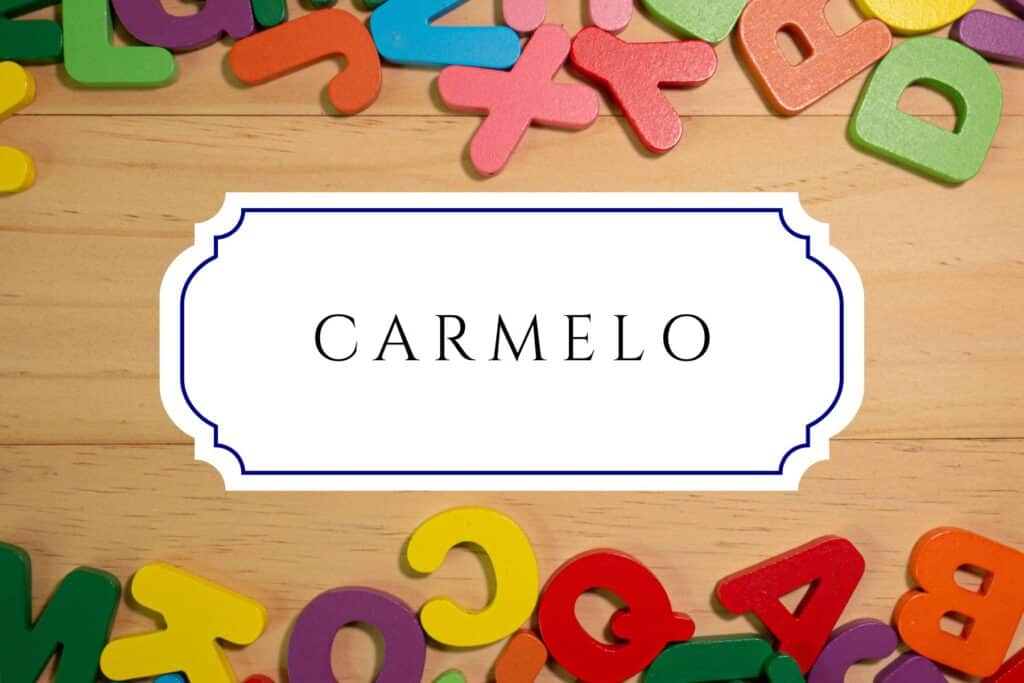
Origin: Hebrew
Meaning: Garden; Vineyard of God
Carmelo, pronounced kar-MEL-oh, comes from Mount Carmel in Israel and is derived from the Hebrew word karmel, meaning "garden" or "vineyard of God."The name gained prominence through the Catholic devotion to Our Lady of Mount Carmel.
Cason
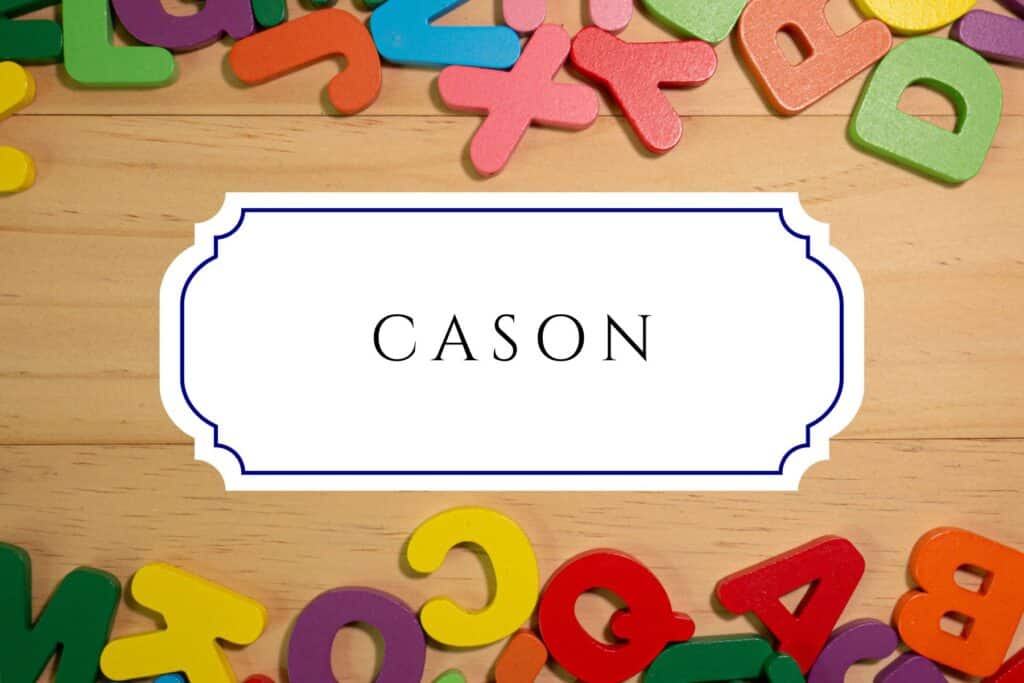
Origin: English; Modern
Meaning: Son of Case; Calf town
Cason, pronounced KAY-sun, is a modern name that likely originated as a variation of Carson or as a combination of "Case" and the suffix "-son." Other theories suggest that it comes from the English place name Cawston, meaning “calf town.”
Curtis
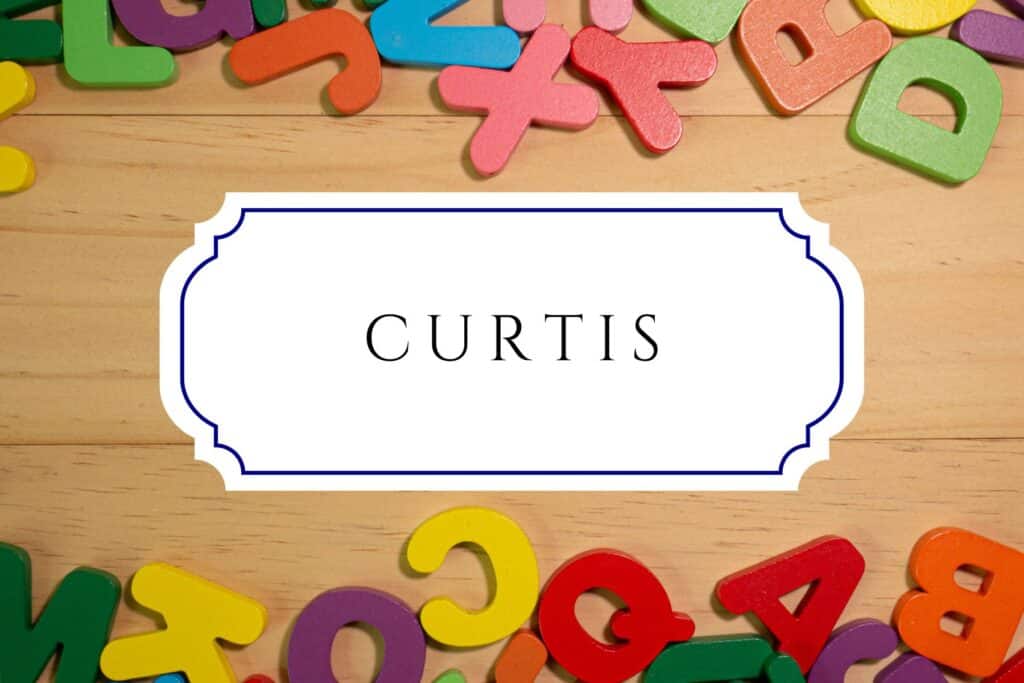
Origin: Old French
Meaning: Courteous; Well-mannered
Curtis, pronounced KUR-tis, derives from an Old French surname curteis, meaning "courteous" or "refined.” It was originally a surname for someone who worked in a court and refers to someone who grew up with good manners.
Coleson
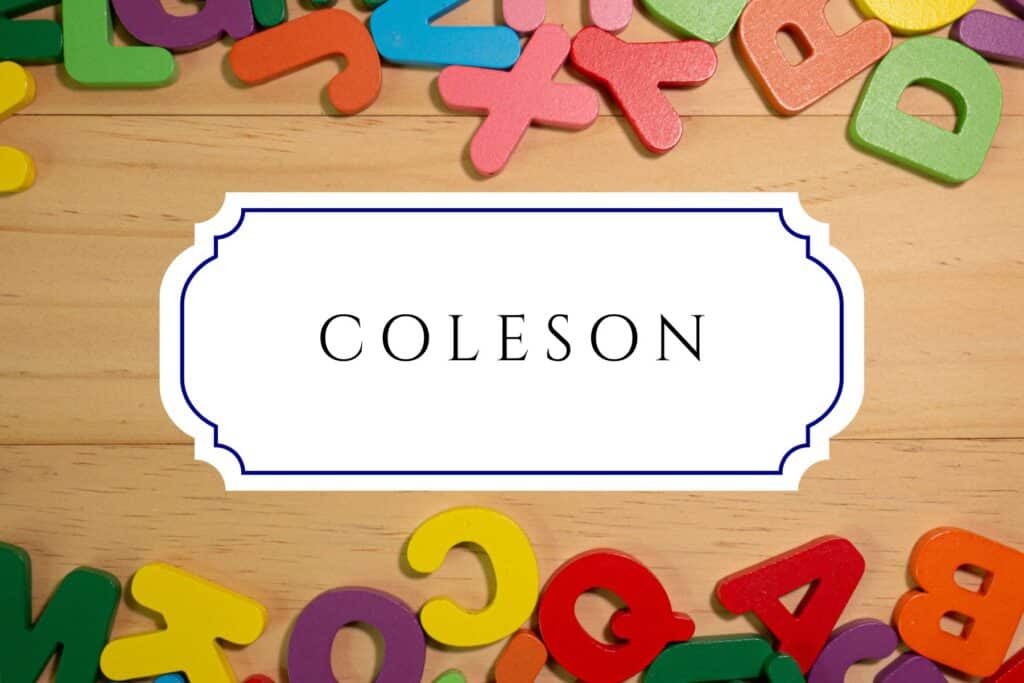
Origin: English; Greek
Meaning: Son of Cole; Coal; Victorious
Coleson, pronounced KOHL-sun, is a patronymic form meaning "son of Cole." Cole itself comes from the Old English word col, meaning "coal" (referring to dark features), or as a short form of Nicholas, which comes from the Greek word nike, meaning "victory."
Carson
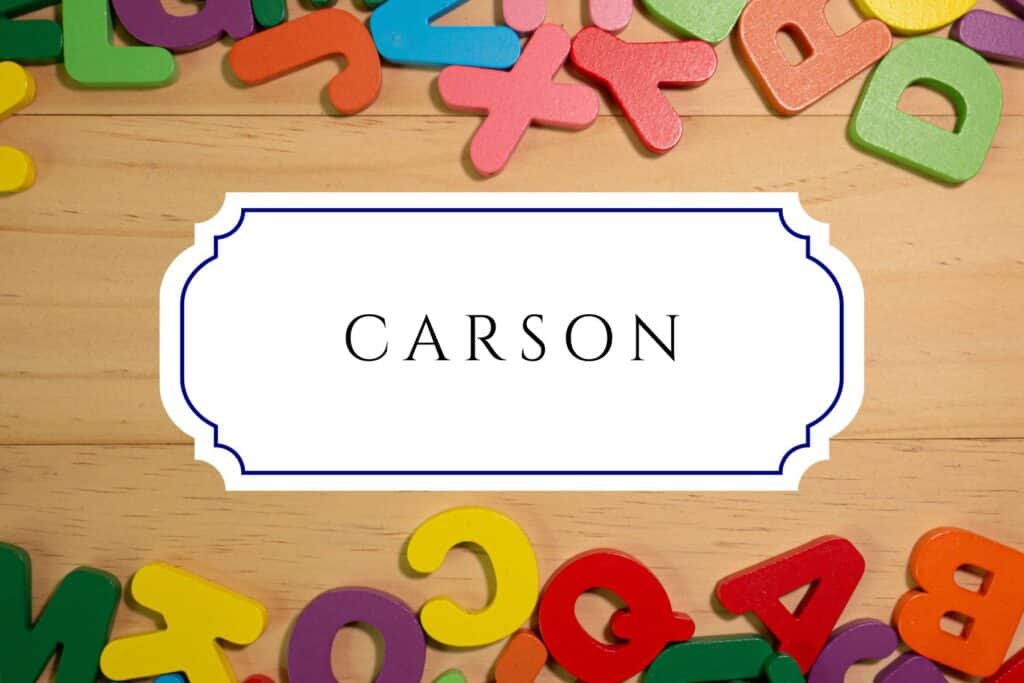
Origin: Scottish; Old Norse
Meaning: Son of Carr; Son of the marsh dwellers
Carson, pronounced KAR-sun, is derived from the Scottish surname meaning "son of Carr" or "son of the marsh-dwellers." The element "carr" is believed to come from the Old Norse word kjarr, meaning "marsh" or "bog."
Connor
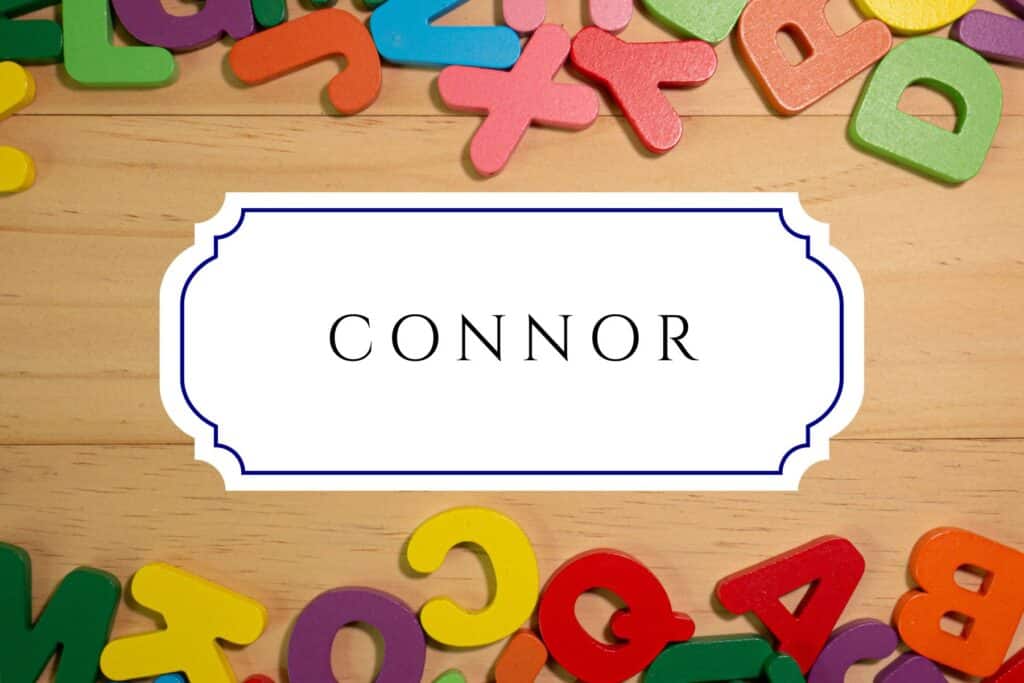
Origin: Old Irish
Meaning: Dog-lover; Lover of wolves
Connor, pronounced KON-er, comes from the Irish name Conchobhar, which is composed of the Old Irish elements cú, meaning "hound" or "wolf," and cobar, meaning "desiring" or "helping."
Carlos
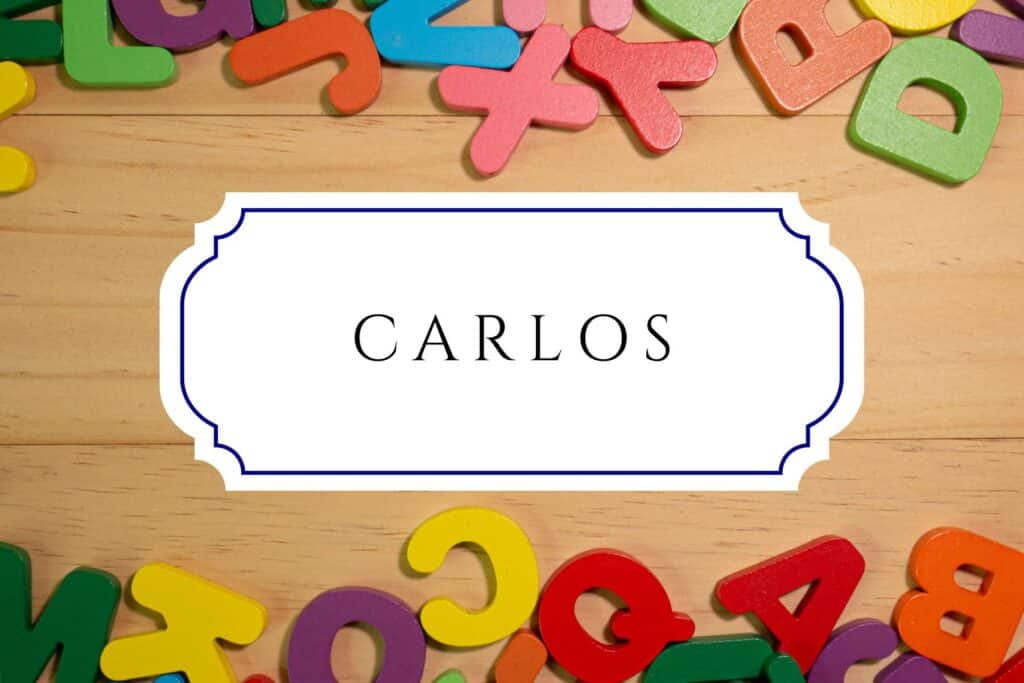
Origin: Spanish; Portuguese; Germanic
Meaning: Man; Free man
Carlos, pronounced KAR-lohs, is the Spanish and Portuguese form of Charles, which comes from the Germanic name Karl and Germanic word karl, meaning "man" or "free man." It’s most popular in Spanish-speaking countries, but consistently ranks in the top-200 in the United States.
Calvin
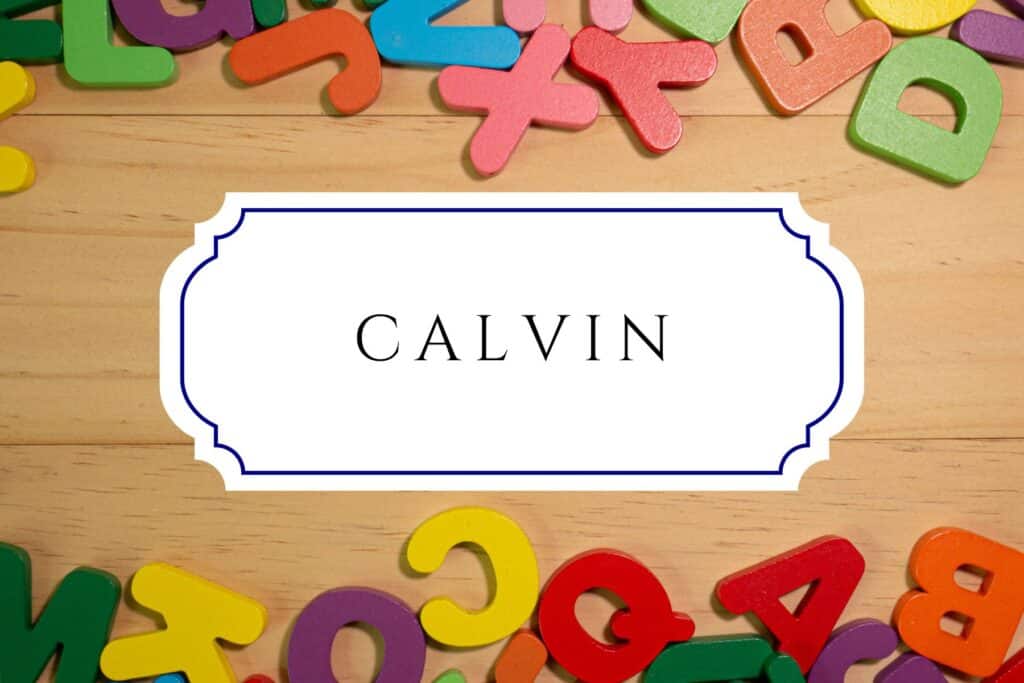
Origin: French; Latin
Meaning: Bald; Bald-headed; Hairless
Calvin, pronounced KAL-vin, comes from the French surname Cauvin, which is derived from the French word chauve and Latin word calvus, meaning “bald.” It gained popularity through the Protestant reformer John Calvin and, more recently, fashion designer Calvin Klein.
Chase
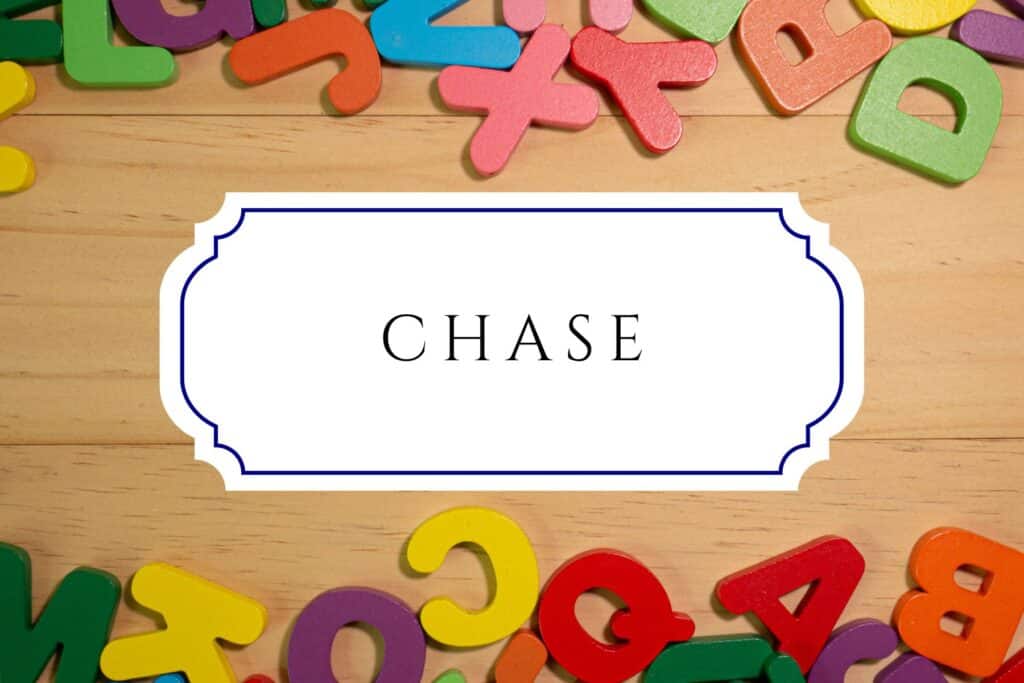
Origin: Middle English; French
Meaning: Hunter; Huntsman
Chase, pronounced CHAYS, comes from the Middle English word chacen and Old French verb chacier, meaning "to hunt" or "to pursue." It began as a surname for hunters or those who lived near hunting grounds and later transitioned to a first name.
Cole
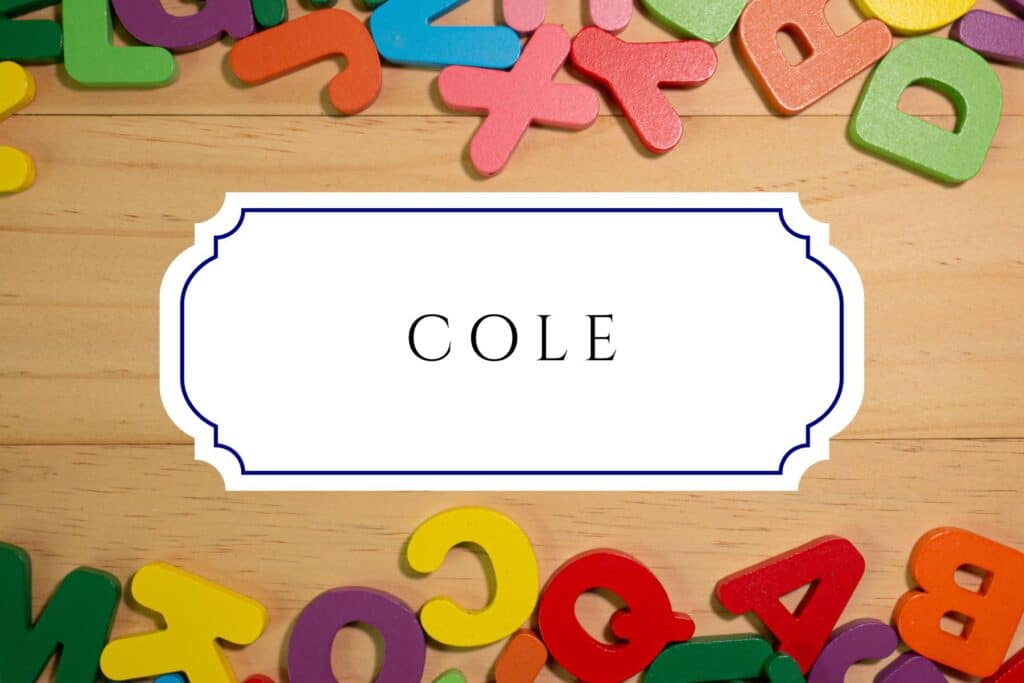
Origin: Old English; Greek
Meaning: Coal; Dark-haired; Victory of the people
Cole, pronounced KOHL, derives from the Old English word col, meaning "coal," and was likely given as a nickname to someone with dark features or hair. It can also be a short form of Nicholas, meaning “victory of the people” in Greek.
Charlie
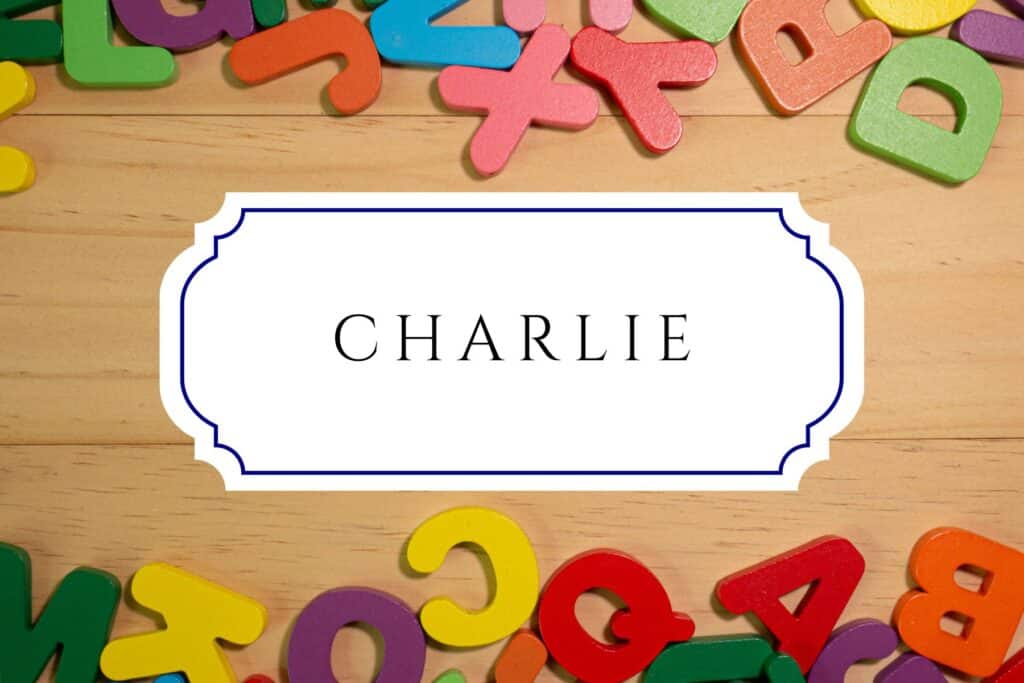
Origin: Germanic; English
Meaning: Man; Free man
Charlie, pronounced CHAR-lee, is a diminutive of the name Charles, which comes from the Germanic name Karl and Germanic word karl, meaning "man" or "free man." It’s commonly used as a nickname, but can also be used as a given name.
Camden
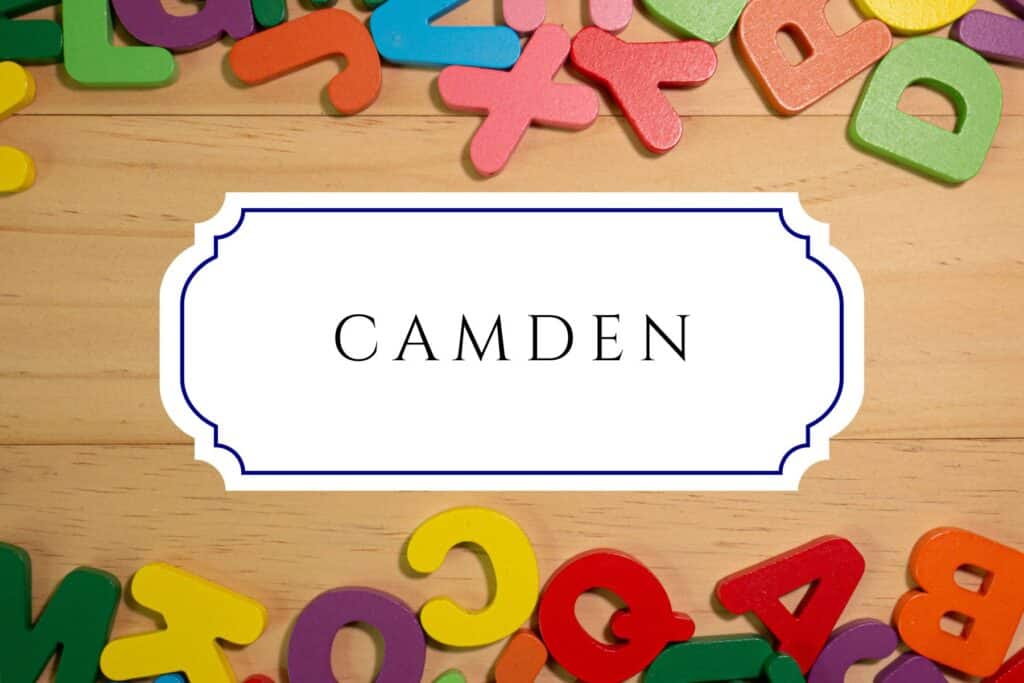
Origin: Old English
Meaning: Winding valley; Enclosed valley
Camden, pronounced KAM-den, comes from a place name in London, which may derive from Old English elements meaning "enclosed valley" or "winding valley." It’s also the name of a city in New Jersey.
Caden
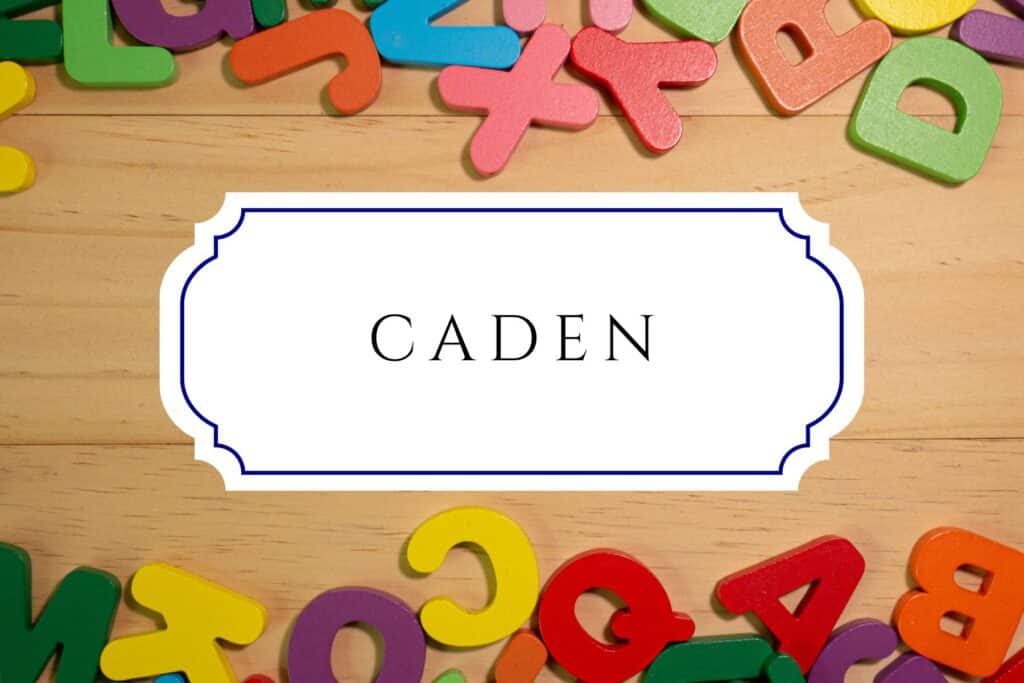
Origin: Irish Gaelic; Modern English
Meaning: Son of Cadain
Caden, pronounced KAY-den, was once believed to come from the Irish surname Mac Cadáin, meaning “son of Cadain,” but its use today is likely inspired by similar-sounding names such as Hayden, Aidan and Braden. Other variations of the name include Cayden, Kaden, Kayden and Kaiden.
Callum
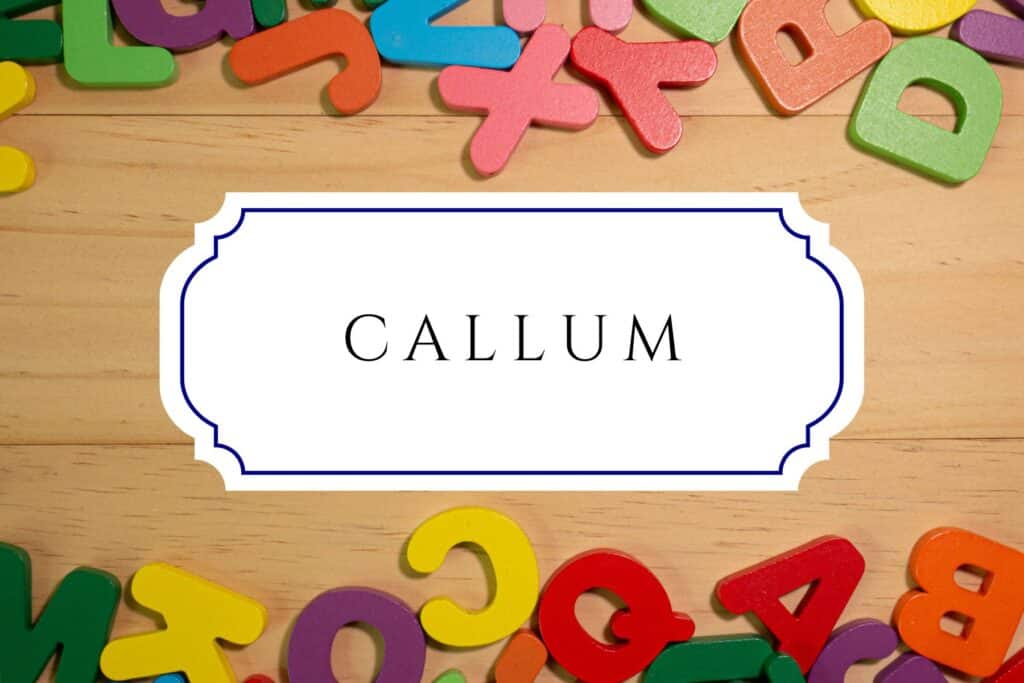
Origin: Scottish Gaelic; Latin
Meaning: Dove; Peaceful
Callum, pronounced KAL-um, is the Scottish Gaelic form of the Latin name Columba, which comes from the Latin word columba, meaning “dove.” was borne by the 6th-century Irish missionary Saint Columba who founded a monastery on the Scottish island of Iona.
Cohen
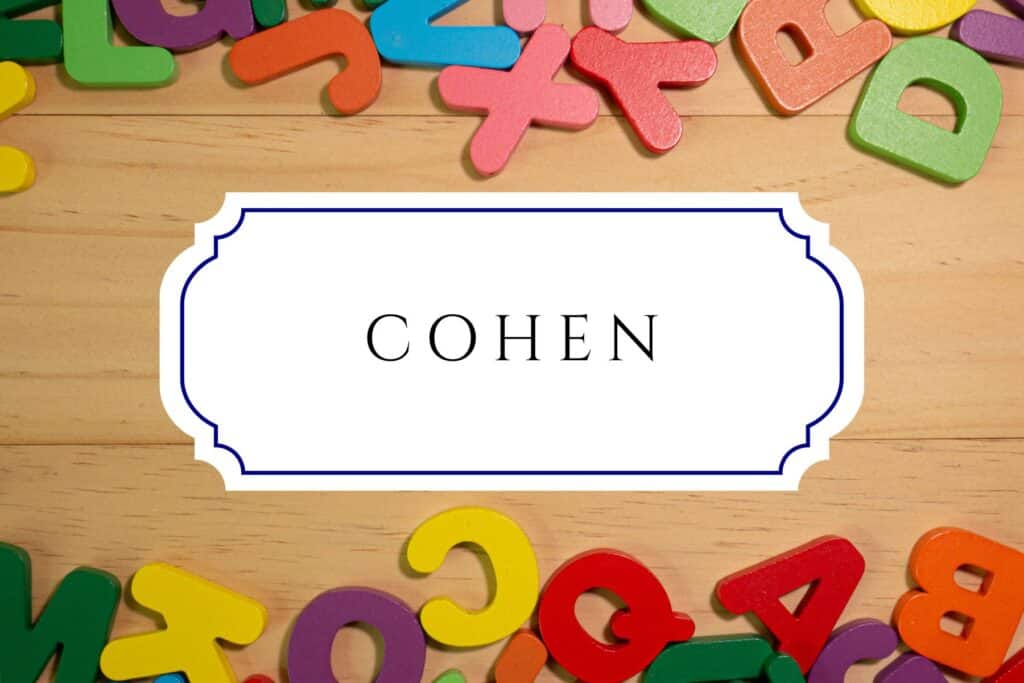
Origin: Hebrew
Meaning: Priest
Cohen, pronounced KOH-en, comes from the Hebrew word kohen, meaning "priest." In Jewish tradition, Kohanim are descendants of Aaron, the brother of Moses, who served as priests in the Temple.
Crew
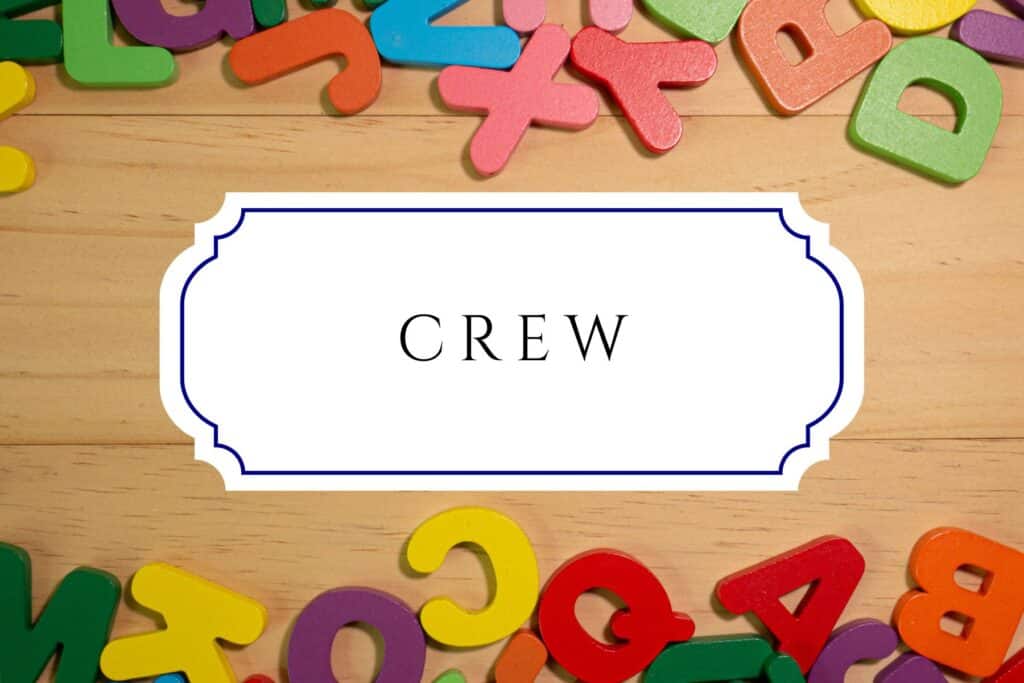
Origin: English; Old French; Welsh
Meaning: Group of people; Teamwork; Weir
Crew, pronounced KROO, comes from the English word for a group of people working together, which originated from the Old French word crue, meaning "increase." It may also derive from the Welsh word criu, meaning “weir” or “crossing.”
Colt
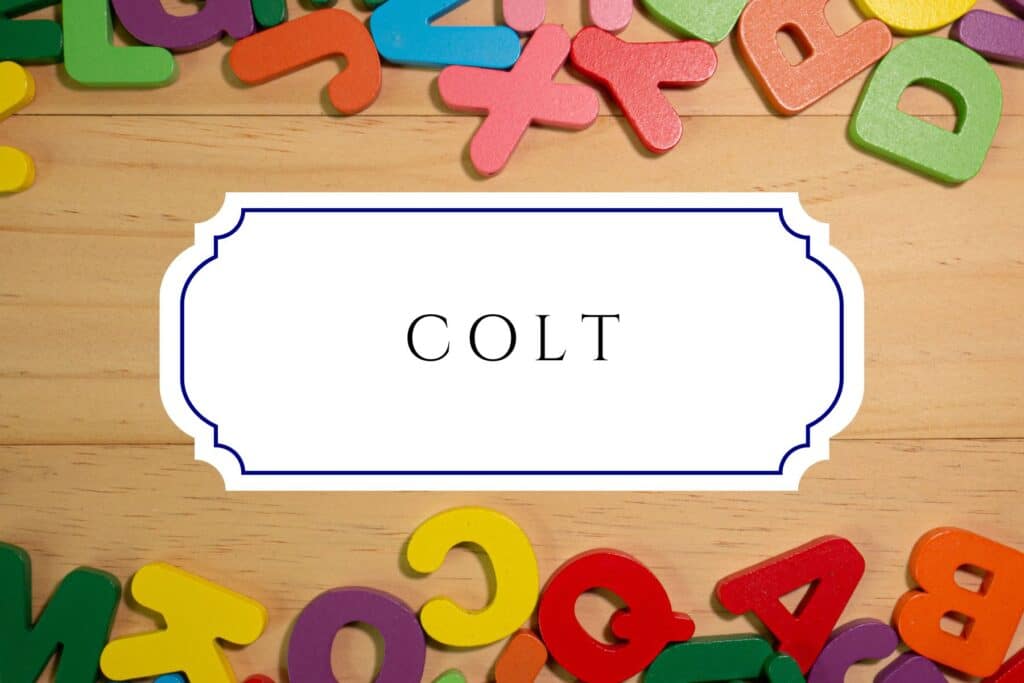
Origin: English
Meaning: Young horse
Colt, pronounced KOHLT, comes directly from the English word for a young male horse. It began as a nickname for someone energetic or untamed before becoming a given name and shortened form of the name Colton.
Cade
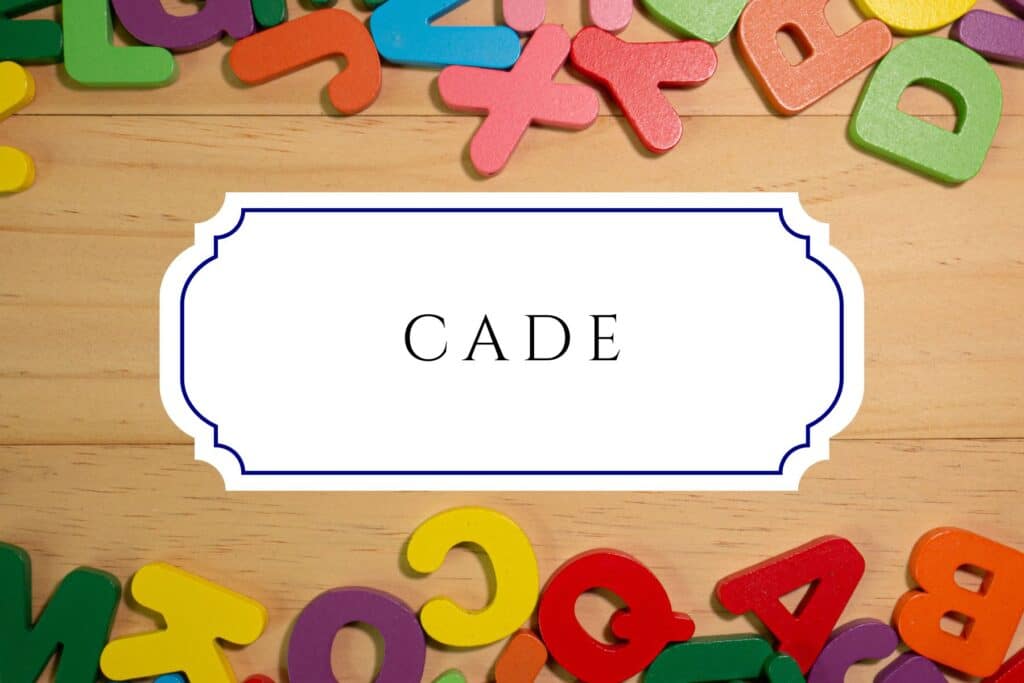
Origin: English
Meaning: Domestic animal; Round
Cade, pronounced KAYD, comes directly from the English word for an animal left by its mother and reared by humans, usually as a pet. It can also be derived from a nickname meaning "round" in Old English.
Cash
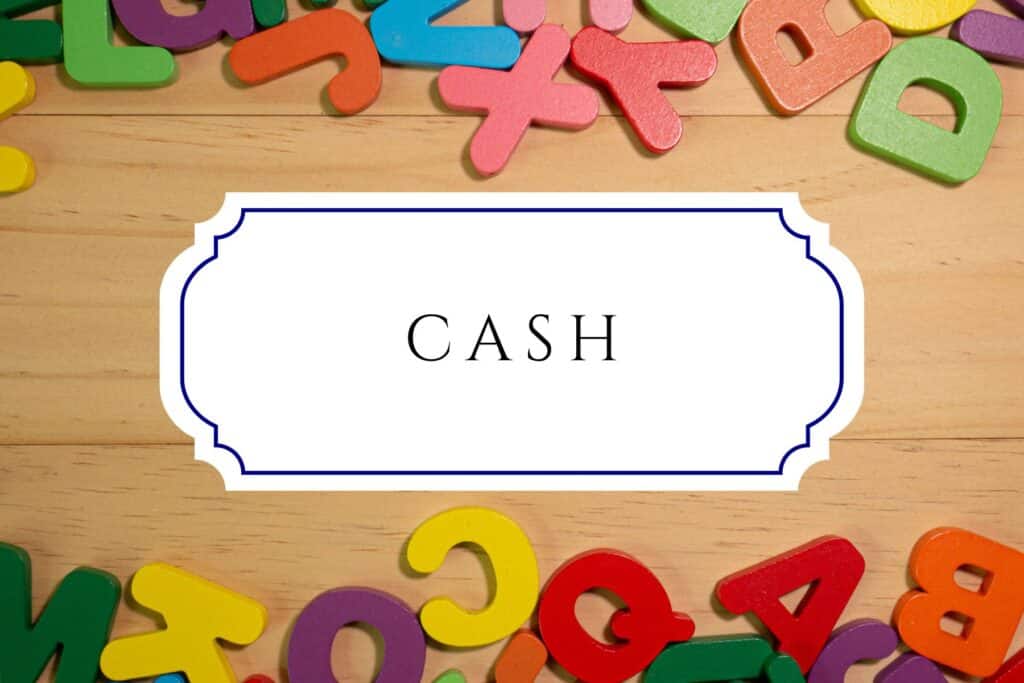
Origin: English; French
Meaning: Box maker; Money; Money box
Cash, pronounced KASH, either comes from the English word for money or the French word caisse, referring to a “money box.” It was originally used as an occupational surname given to a box maker.
Cyrus
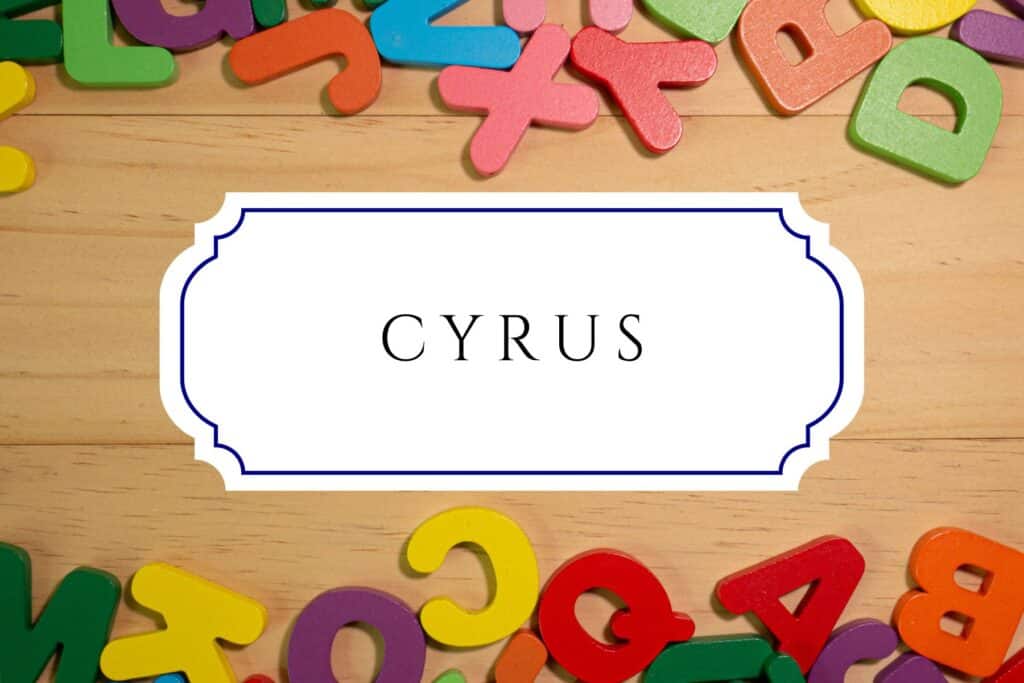
Origin: Persian; Greek
Meaning: Sun; Throne; Lord
Cyrus, pronounced SY-rus, comes from the Greek form of the Persian name Kūruš, possibly meaning "sun" or "throne." Other theories link it to the Greek word kyrios, meaning “lord.” It was the name of several Persian kings, including Cyrus the Great who founded the Achaemenid Empire.
Cody
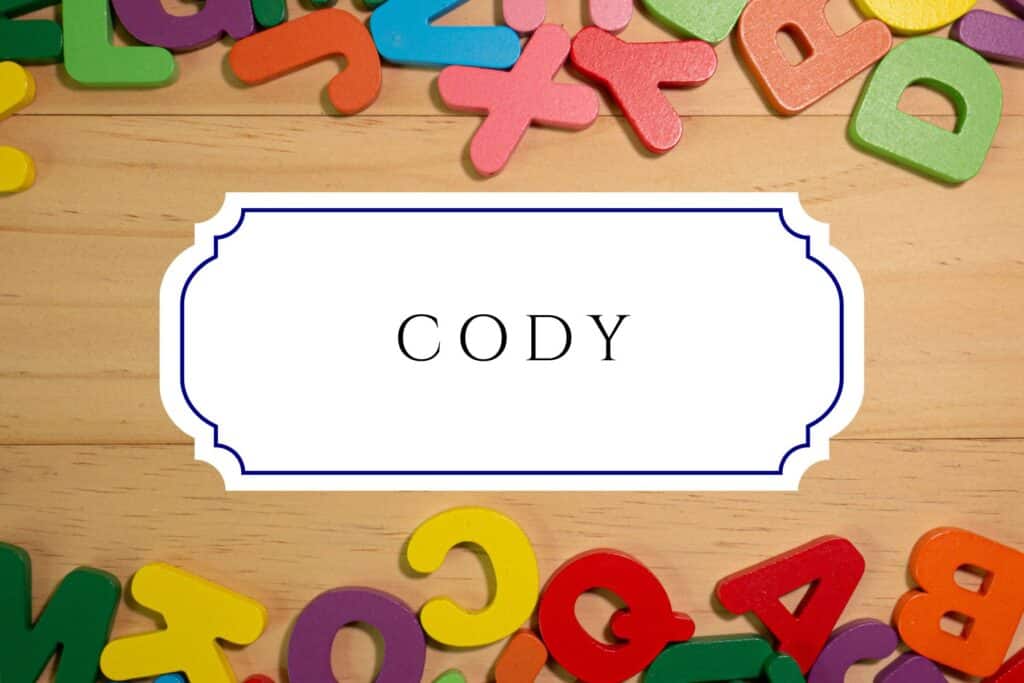
Origin: Irish Gaelic
Meaning: Helpful; Portion; One who shares
Cody, pronounced KOH-dee, comes from the Irish surname Ó Cuidighthigh and Irish word cuidigh, meaning “helpful” or “to help.” It can also be derived from the Gaelic word cuid, meaning "portion" or "share."
Clayton
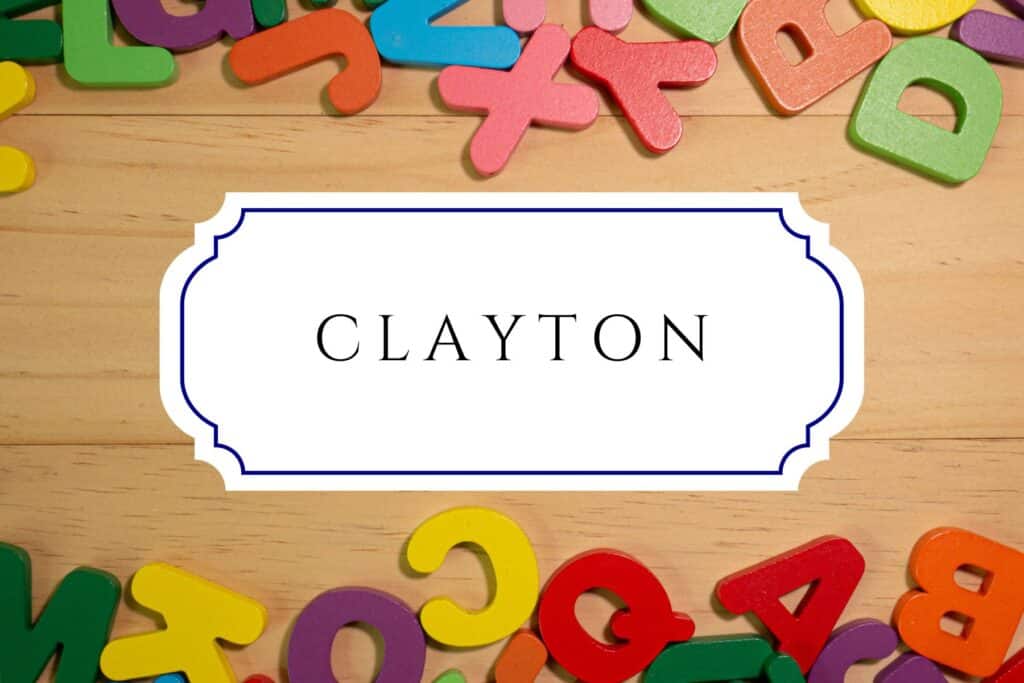
Origin: Old English
Meaning: Clay settlement; Town of made clay
Clayton, pronounced KLAY-tun, derives from an Old English place name meaning "settlement on clay soil," and is composed of the Old English elements clæg, meaning “clay,” and tun, meaning “enclosure” and “settlement.”
Casey
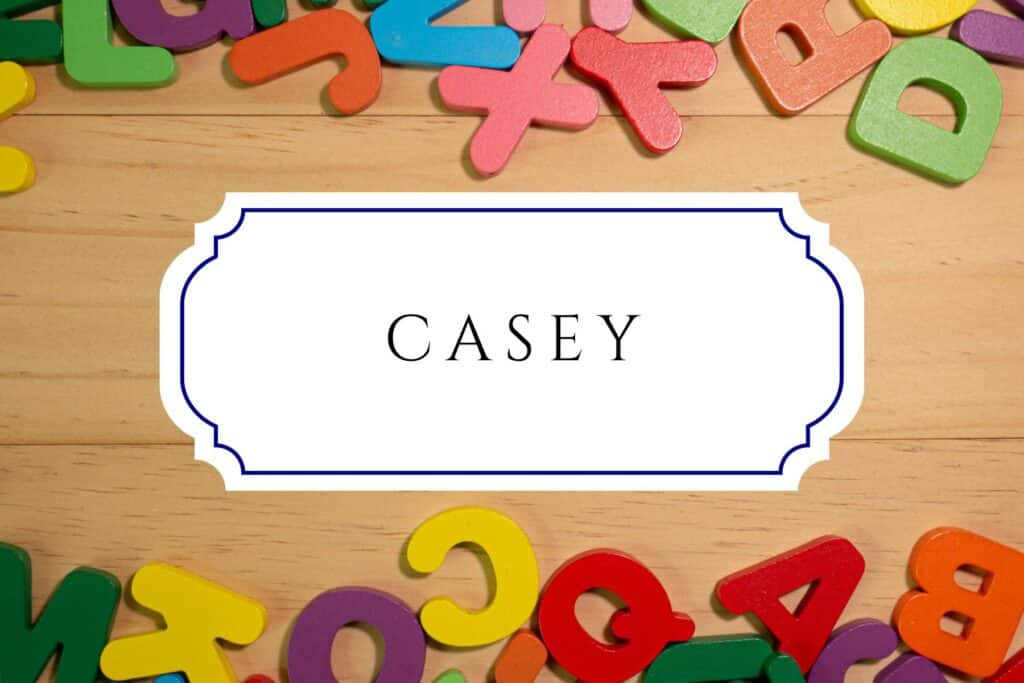
Origin: Old Irish
Meaning: Vigilant; Watchful
Casey, pronounced KAY-see, comes from the Irish surname Ó Cathasaigh and Old Irish given name Cathassach, which means “vigilant” or “watchful” in the Irish language. It was popularized in the U.S. by Casey Jones, a locomotive engineer in the late-1800s.
Colter
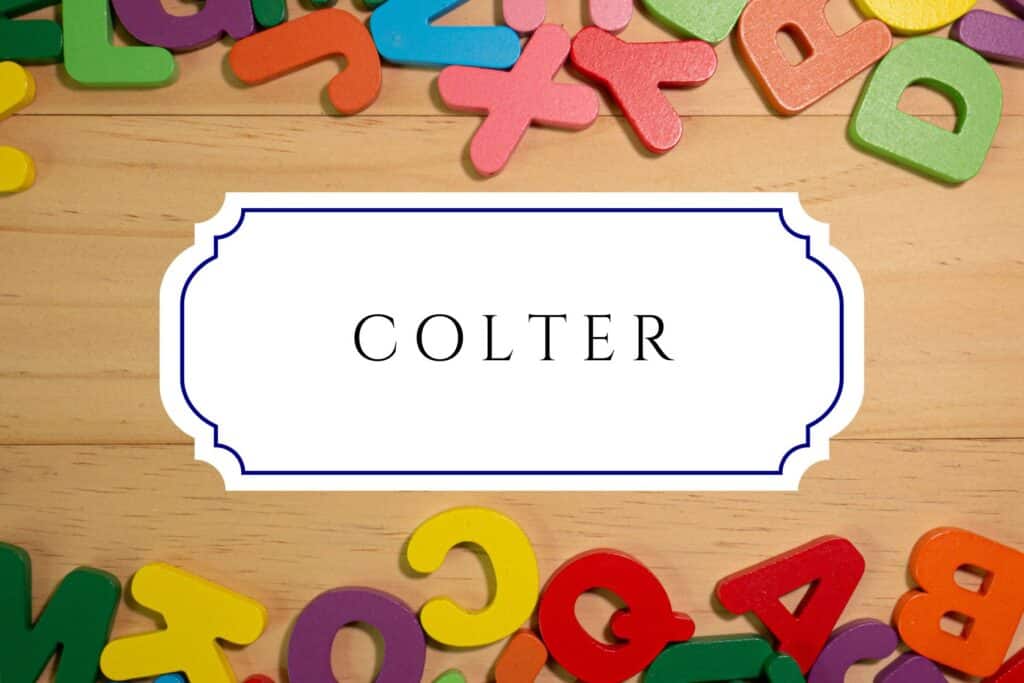
Origin: Old English
Meaning: Colt herder; Plowman
Colter, pronounced KOHL-ter, derives from the English surname that originally referred to someone who tended colts or to a plowshare (the blade of a plow). It comes from the Old English culter meaning "knife" or "plowshare."
Cruz
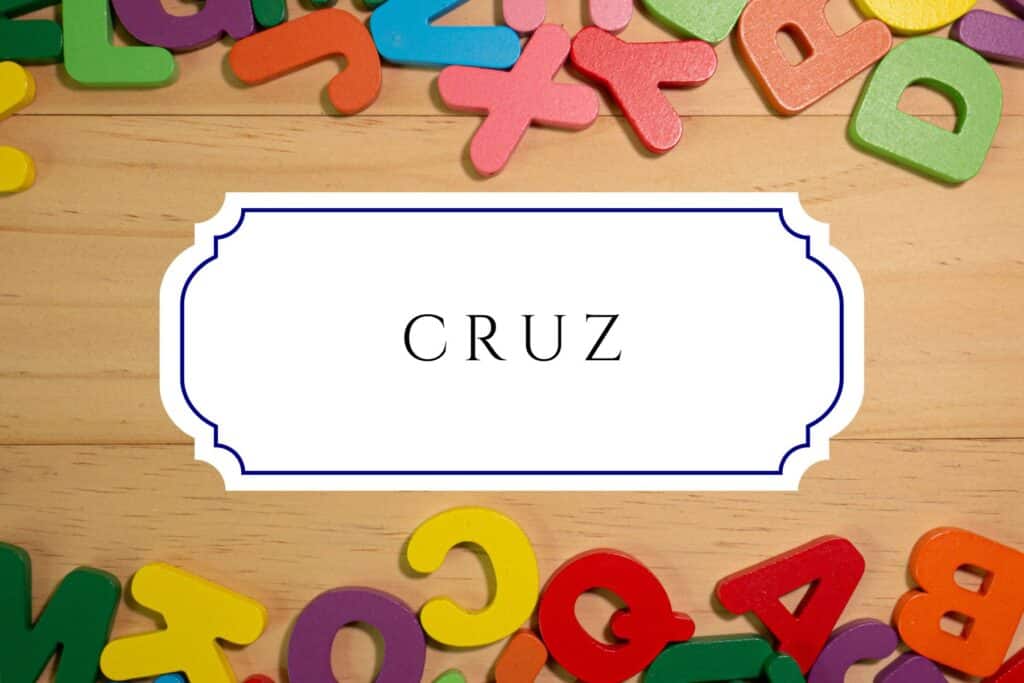
Origin: Spanish; Portuguese; Latin
Meaning: Cross
Cruz, pronounced KROOZ, comes from the Spanish and Portuguese word cruz, meaning "cross," and is ultimately derived from the Latin word crux, of the same meaning. It has deep Christian roots as a reference to the cross of the crucifixion.
Cairo
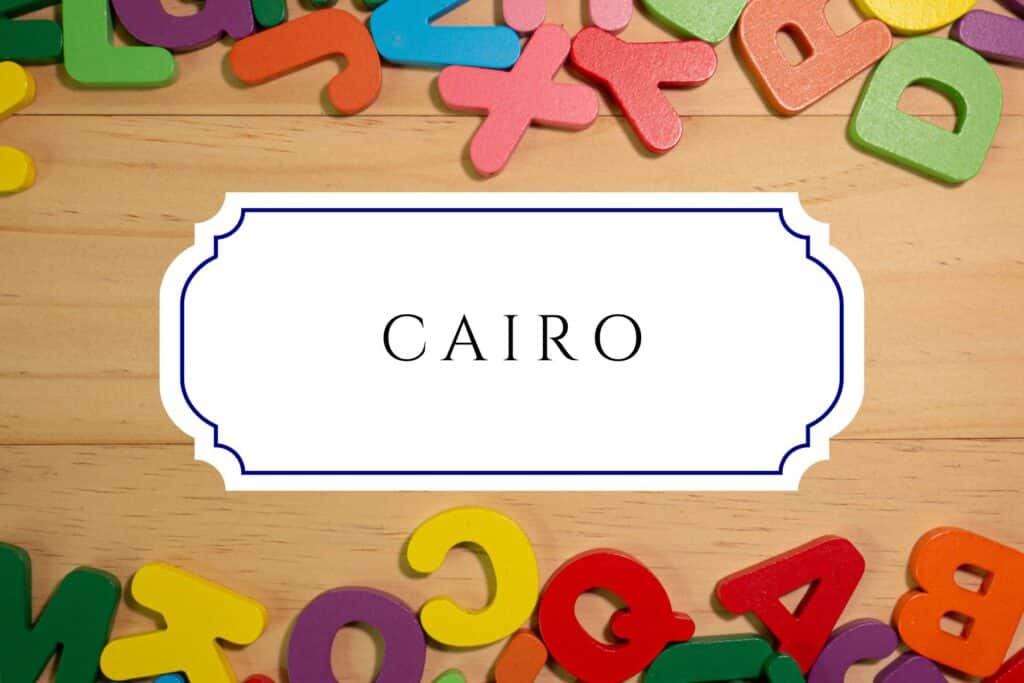
Origin: Egyptian; Arabic
Meaning: Victorious; Conqueror
Cairo, pronounced KY-roh, comes from the name of Egypt's capital city , which derives from the Arabic name Al-Qāhirah, meaning "the victorious" or "the conqueror." Cairo is located in northeastern Egypt on the banks of the Nile River.
Colin
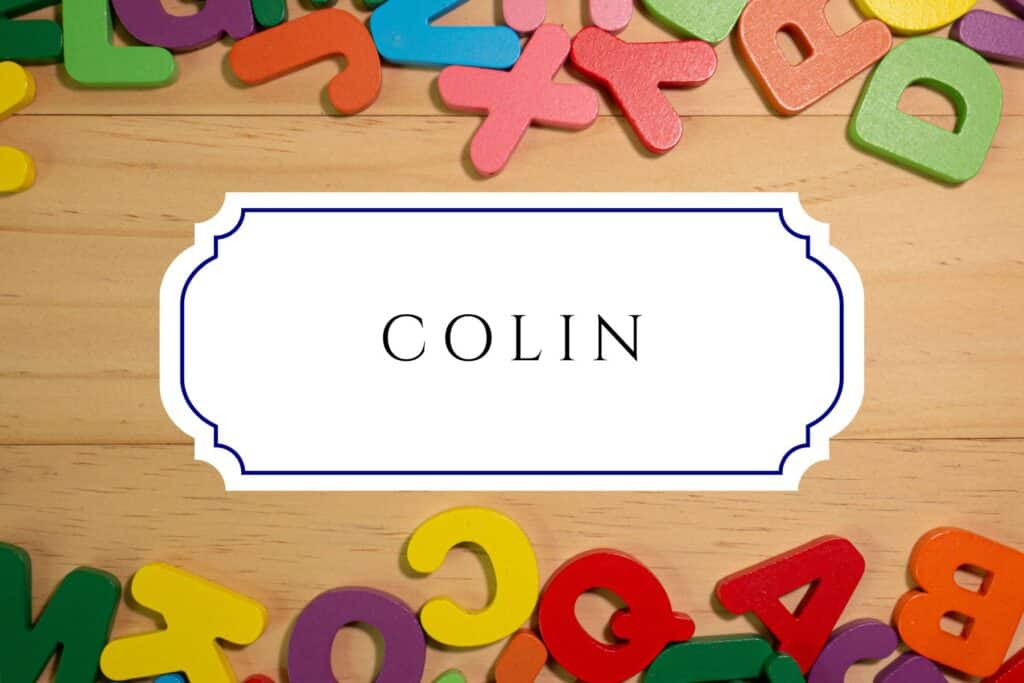
Origin: Scottish; Old Irish; English
Meaning: Whelp; Puppy; Coal
Colin, pronounced KOL-in, may be an elaborated form of the name Cole, but it’s also the Anglicized form of the Scottish name Cailean, which is derived from the Old Irish word cuilén, meaning “whelp” or “puppy.”
Callan
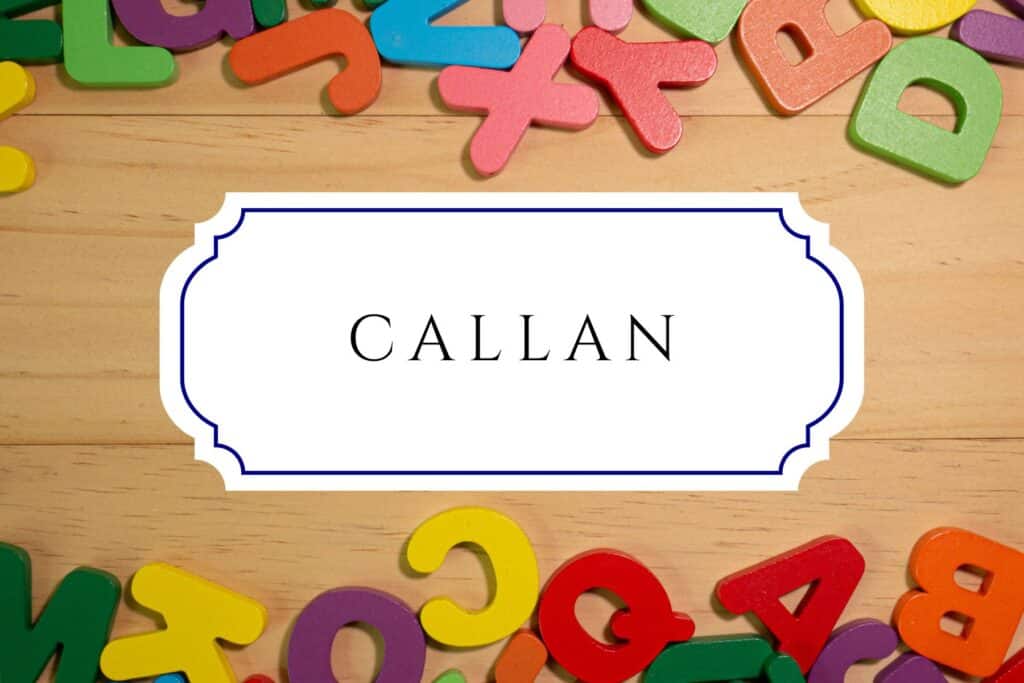
Origin: Old Irish; Gaelic
Meaning: Battle Ruler; Powerful in battle
Callan, pronounced KAL-an, comes from the Irish surname Ó Cathaláin, which is derived from the Gaelic personal name Cathalán, itself a diminutive of Cathal, meaning "battle ruler" or "powerful in battle” in Old Irish.
Chivan
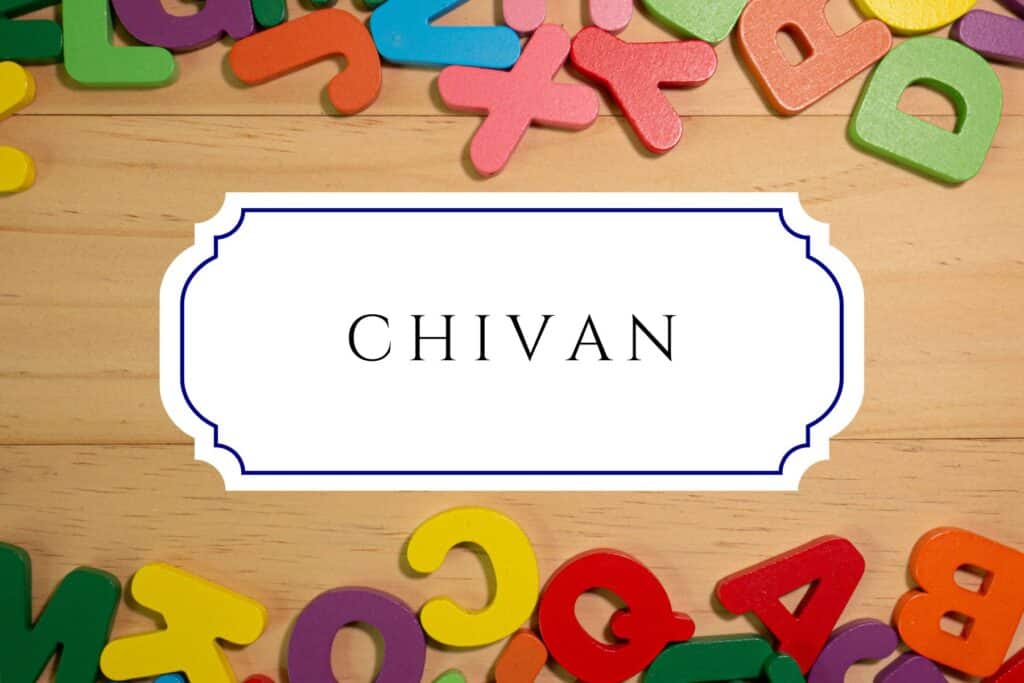
Origin: Khmer
Meaning: Life; Soul
Chivan, pronounced chee-VAHN, is derived from the Khmer word chivit meaning "life" or "soul." It’s the middle name of actors Angelina Jolie and Brad Pitt’s eldest child Maddox Chivan, born in August 2001.
Carter
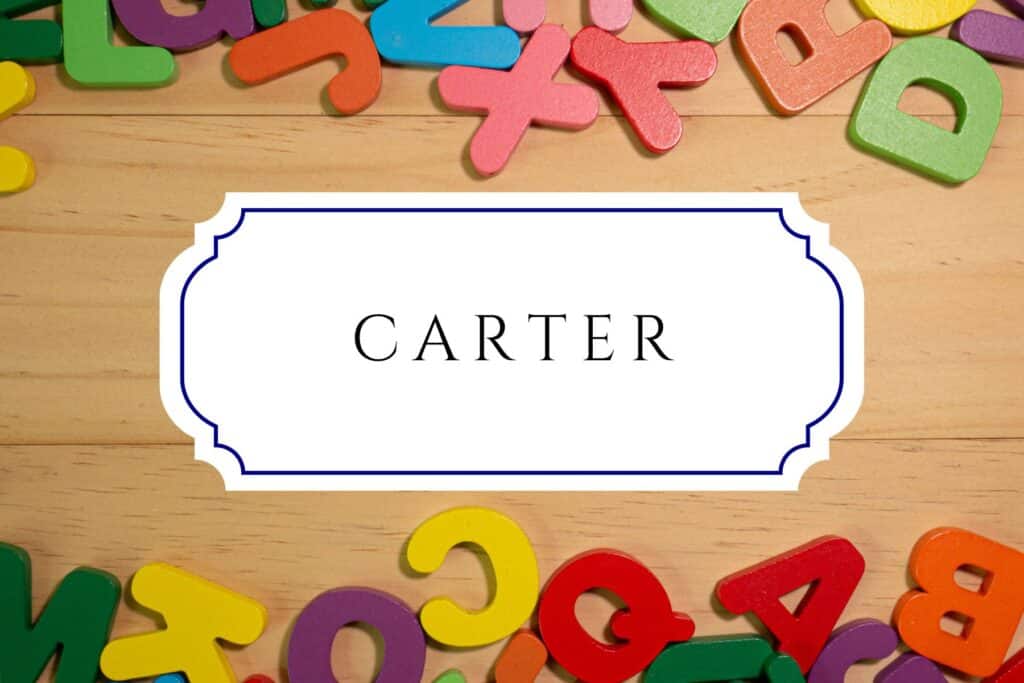
Origin: Middle English; Anglo-French
Meaning: Cart driver; Transporter of goods
Carter, pronounced KAR-ter, is a Middle English occupational surname given to someone who built carts or transported goods by cart. The English word carter comes from the Anglo-French word careter, meaning “cart driver.”
Caleb
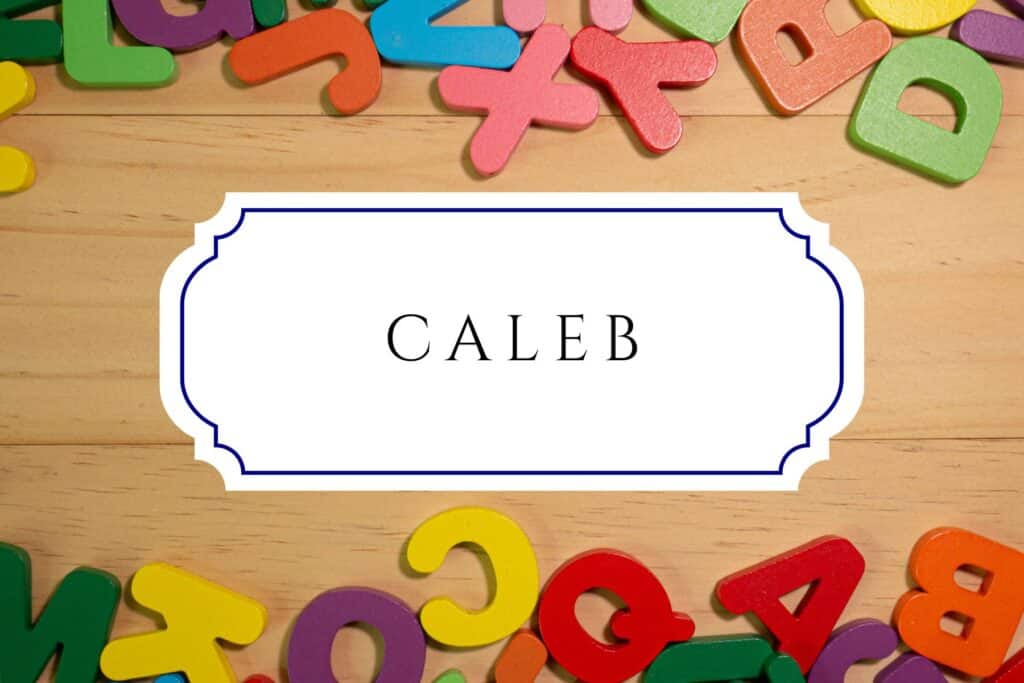
Origin: Hebrew
Meaning: Dog-like; Man’s best friend; Whole-hearted
Caleb, pronounced KAY-leb, comes from the Hebrew name Kalev, which may derive from the Hebrew word kelev, meaning "dog." It can also come from the Hebrew elements kol, meaning “whole,” and lev, meaning “heart.”
Cooper
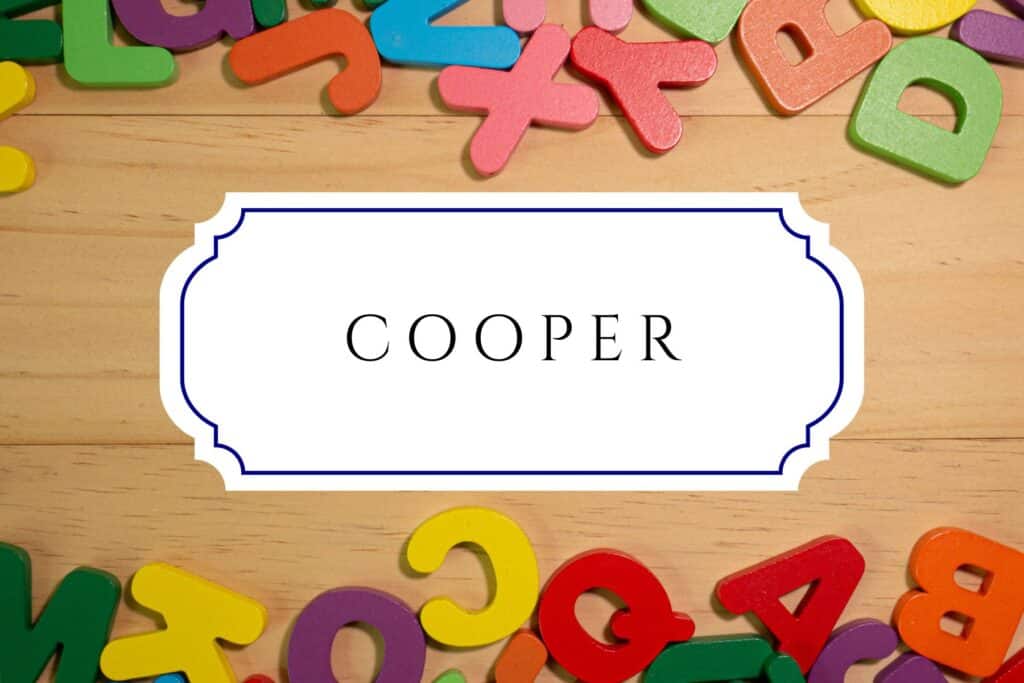
Origin: Middle English
Meaning: Barrel maker
Cooper, pronounced KOO-per, comes from the Middle English occupational surname given to a barrel maker. The English word cooper is believed to be derived from the Middle English couper or Middle Dutch cuper, of the same meaning..
Cameron
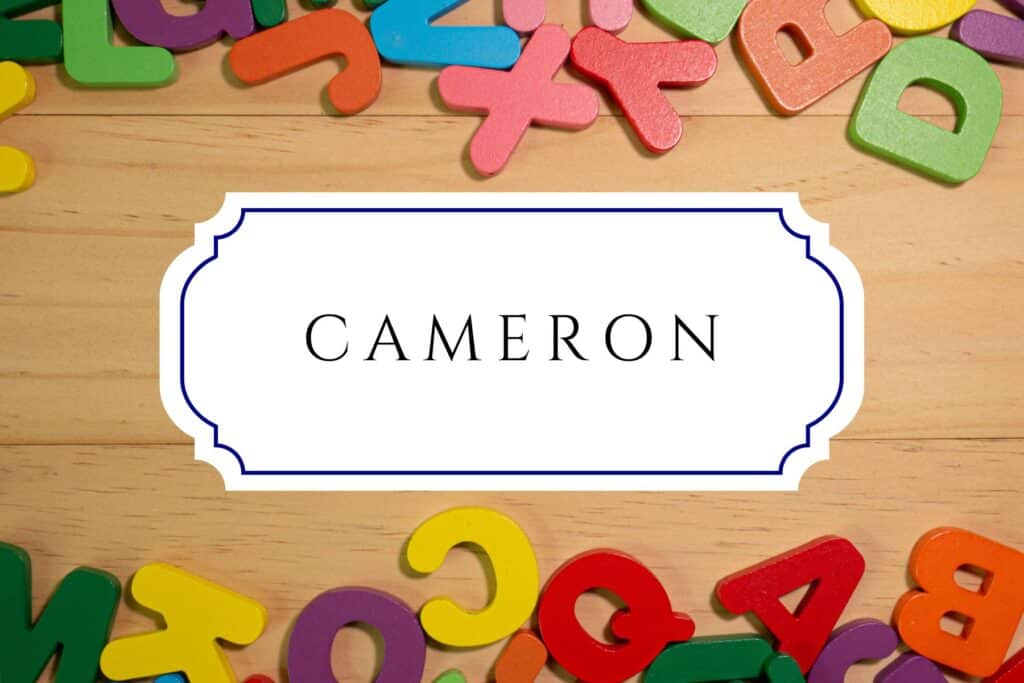
Origin: Scottish; Gaelic
Meaning: Crooked nose
Cameron, pronounced KAM-er-on, comes from a Scottish surname composed of the Gaelic elements cam, meaning “crooked,” and sròn, meaning “nose.” Originally used primarily for boys, it has become increasingly popular for girls as well in recent decades.
Christian
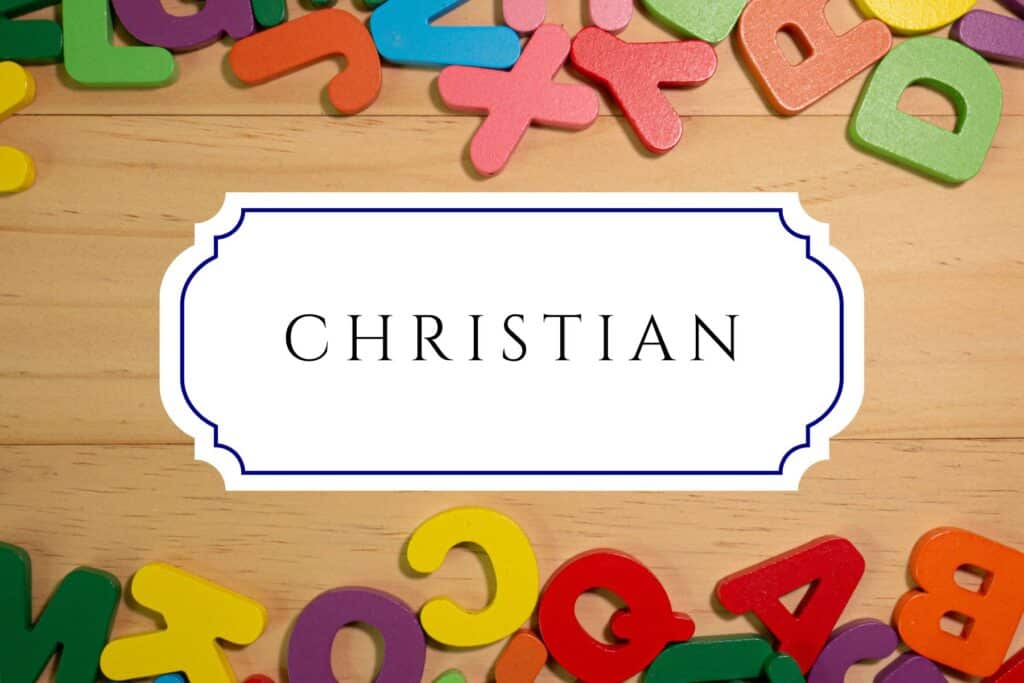
Origin: Latin; Greek
Meaning: Follower of Christ; Anointed
Christian, pronounced KRIS-chen, comes from the medieval Latin name Christianus, meaning “a Christian,” and Greek name Christos, which is derived from the Greek word chrio, meaning “to anoint.”
Colton

Origin: Old English
Meaning: Coal town; Young horse
Colton, pronounced KOHL-tun, is derived from a place name composed of the Old English elements col, meaning “coal,” and tun, meaning “settlement” or “enclosure.” It can also be an elaborated form of Colt, referring to a young male horse.
Castiel
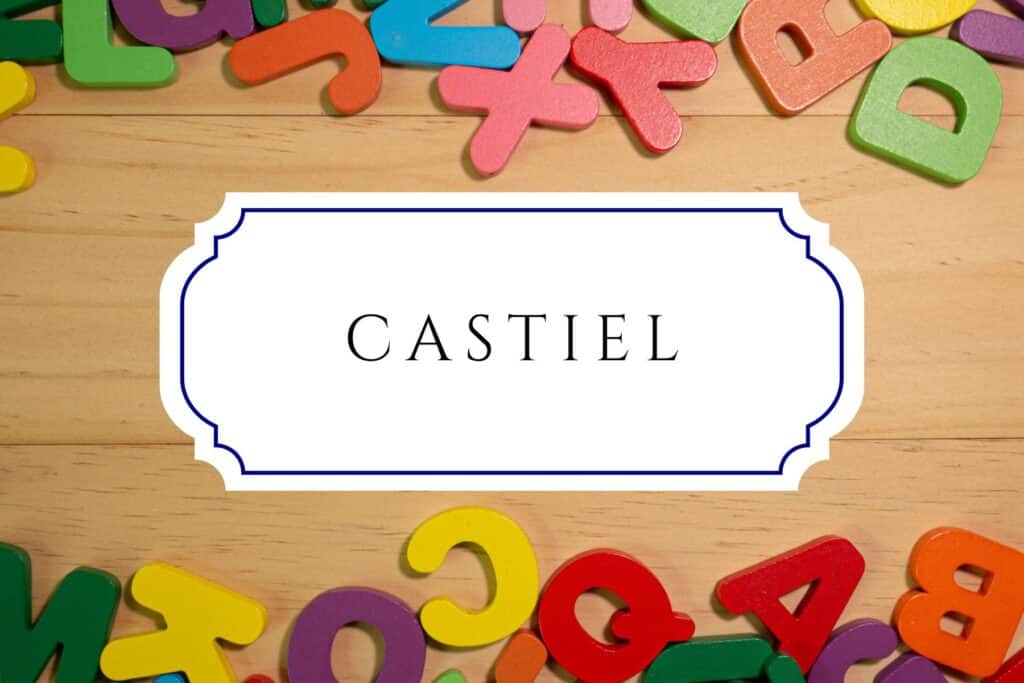
Origin: Hebrew
Meaning: Shield of God; Drawn together by God
Castiel, pronounced kas-tee-EL, is believed to be a variant of Cassiel, which comes from the Hebrew name Qaftsiʾel, meaning “shield of God” or “drawn together by God.” Castiel was the name of a character (an angel) on the American television series “Supernatural.”
Cullen
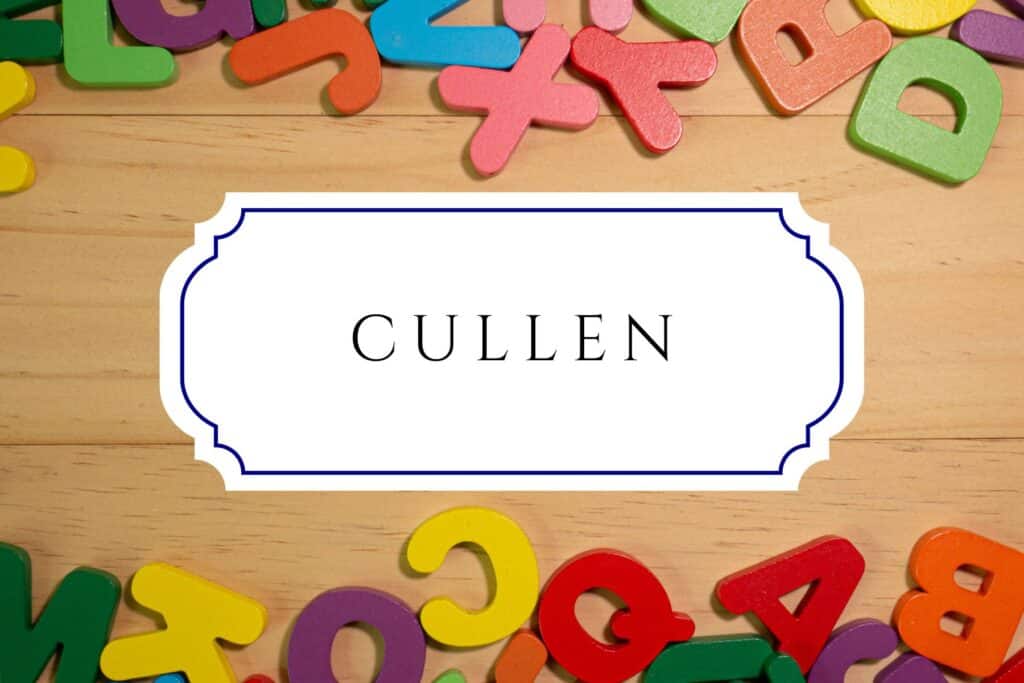
Origin: Irish; Gaelic; Latin
Meaning: Holly; Colony
Cullen, pronounced KUL-en, comes from the Irish surname Ó Cuilinn, which is derived from the Gaelic cuileann, meaning "holly." It can also come from the Latin word colonia, referring to a colony.
Cayden
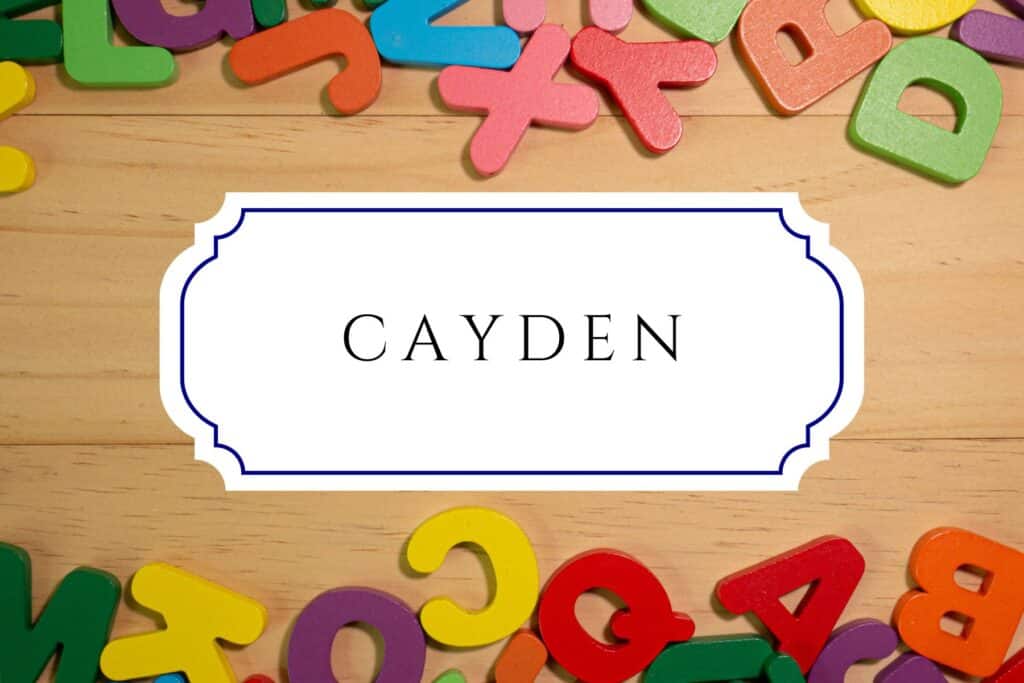
Origin: English; Modern
Meaning: Descendant of Cadán
Cayden, pronounced KAY-den, is a variant spelling of Caden that likely gained popularity as part of a larger interest in similar-sounding names like Hayden, Kayden, Brayden and Ayden in the early-2000s..
Crue
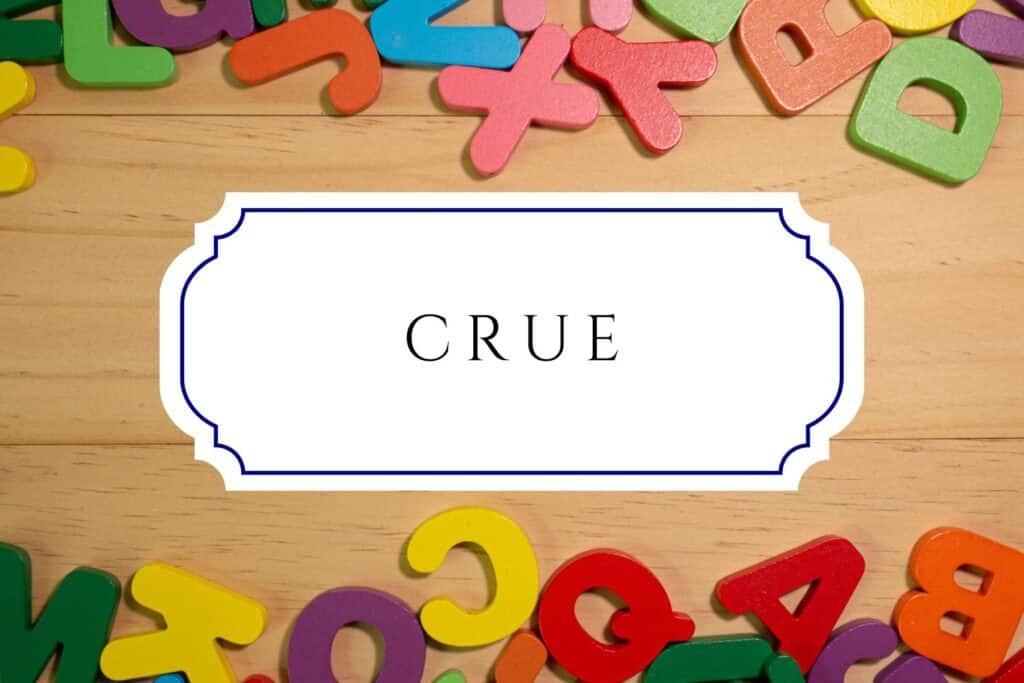
Origin: Old French; English
Meaning: Increase; Group; Teamwork
Crue, pronounced KROO, is derived directly from the Old French word crue, meaning “to increase.” It’s commonly used as an alternative spelling of Crew, which comes from the English word crew, referring to a group of people working together.
Corey
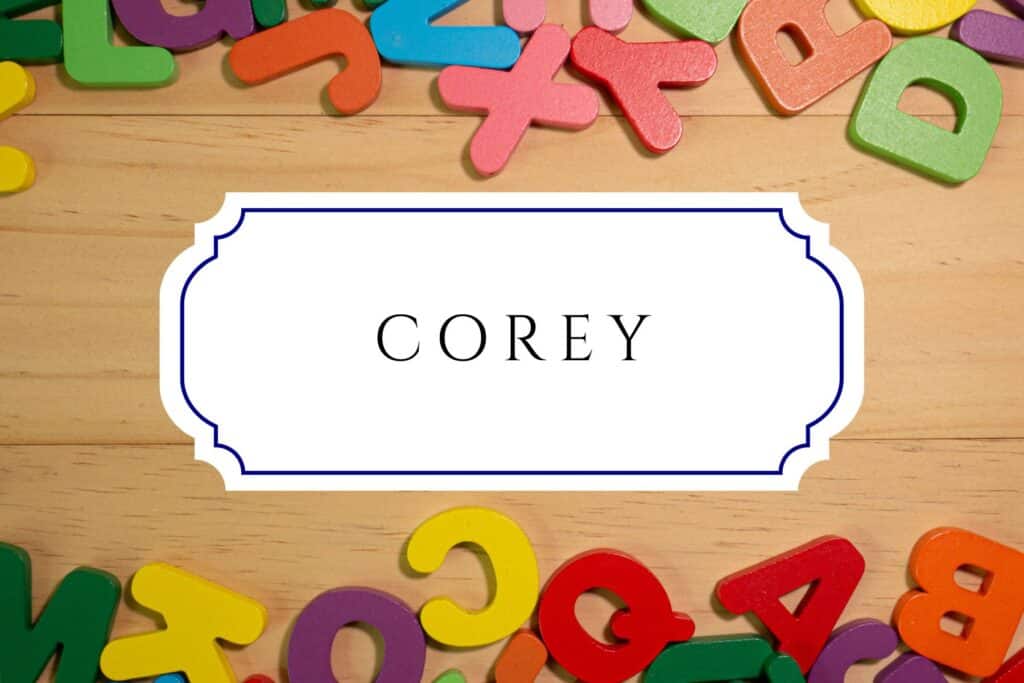
Origin: Old Norse; English
Meaning: Unknown
Corey, pronounced KOR-ee, was originally used as a surname before gaining popularity as a given name. It’s believed to be derived from the Old Norse name Kóri, but the meaning is unknown and debated.
Not Intrigued By Baby Boy Names That Start With C?
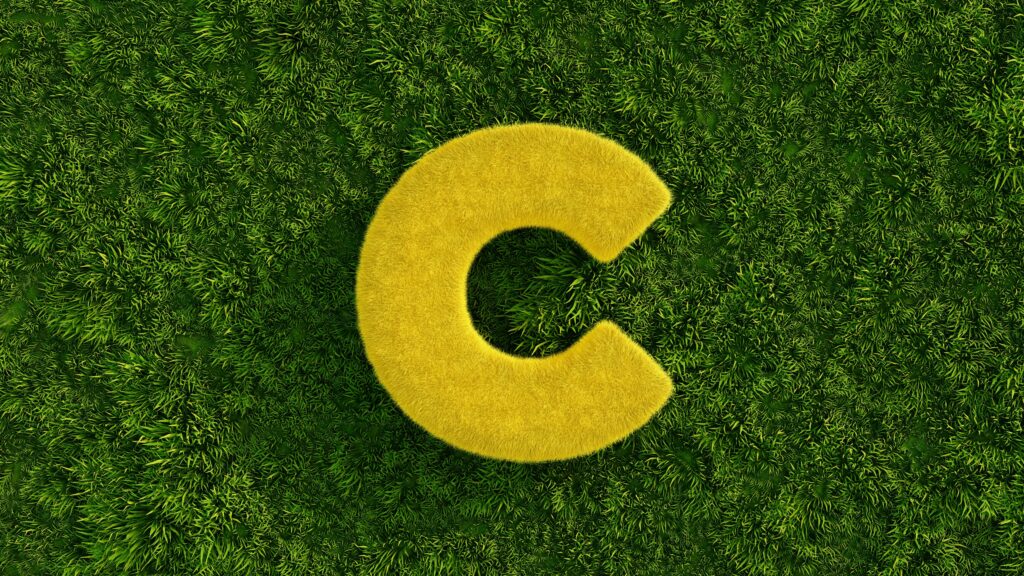
Are you not impressed by the boy names that start with C above? Don't worry, there are 25 other letters of the alphabet to explore for your future son!
You might be drawn to powerful K names like Kai and Kingston, timeless R options such as Ryan and Robert, or distinctive D names like Daniel and Dylan.
Some parents find the name they like right away, while others need a few weeks, months or years to ponder.
Either way, you can rest easy knowing that Mod Moms Club has all the unique baby name ideas you need. And we even have a baby name generator to help take some of the pressure off!



